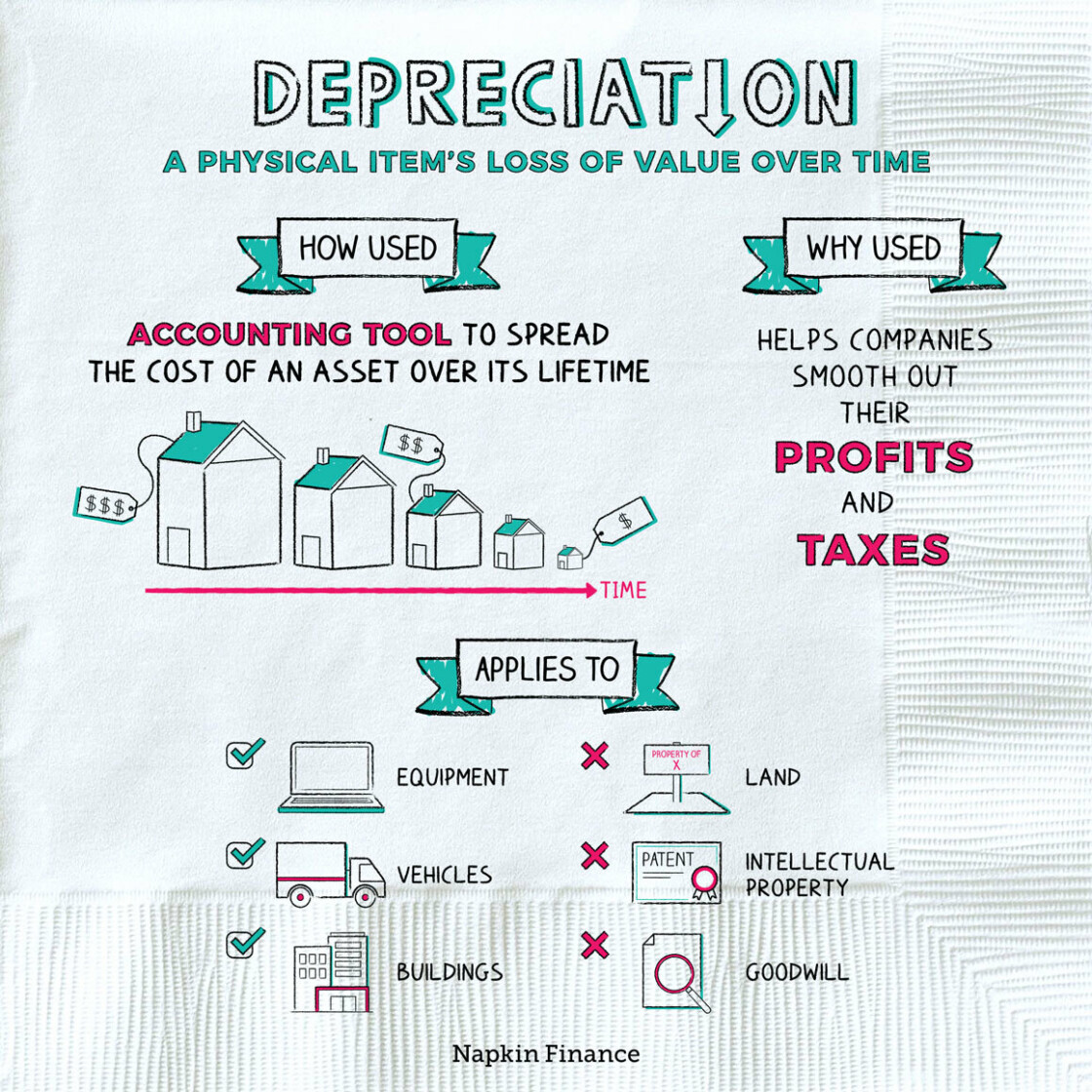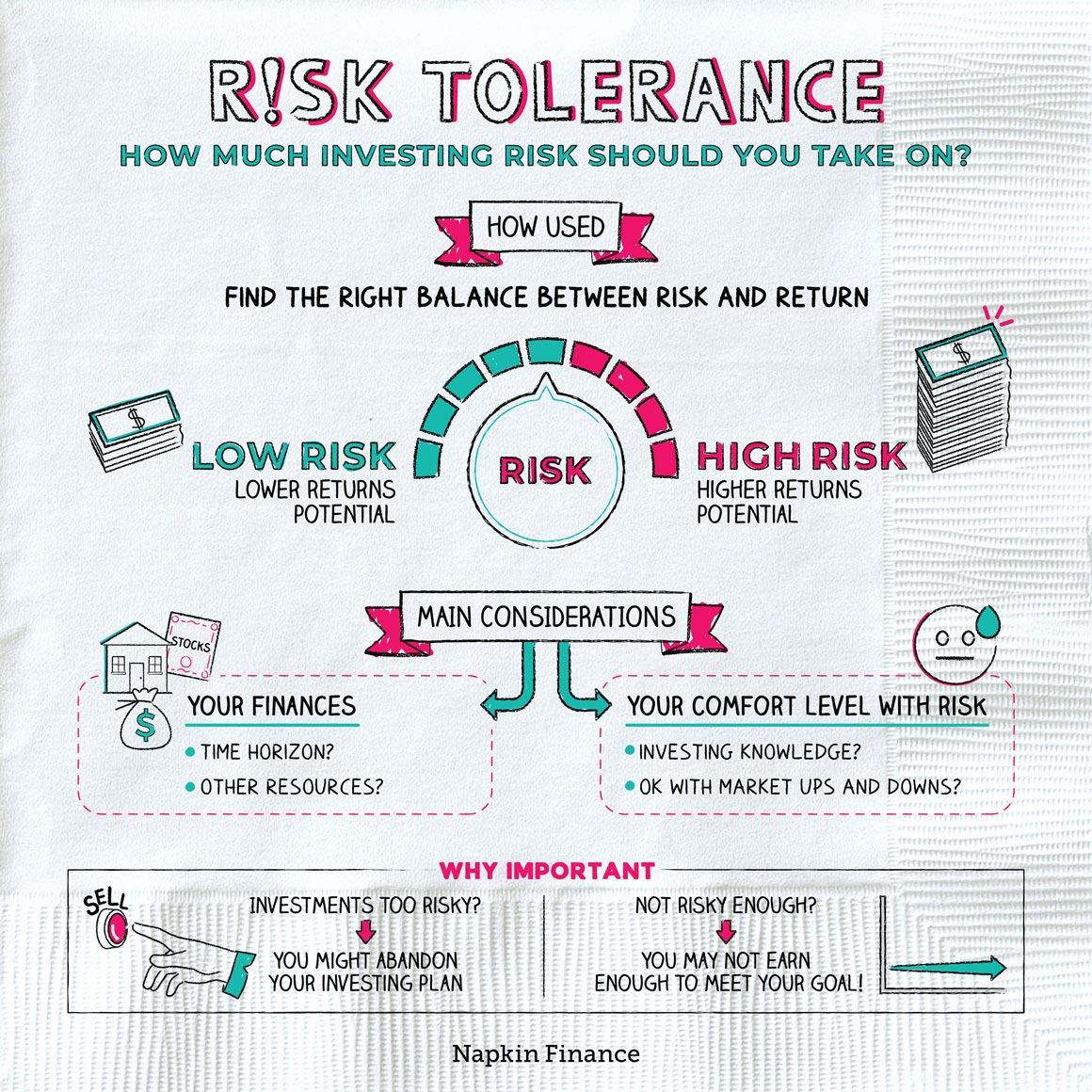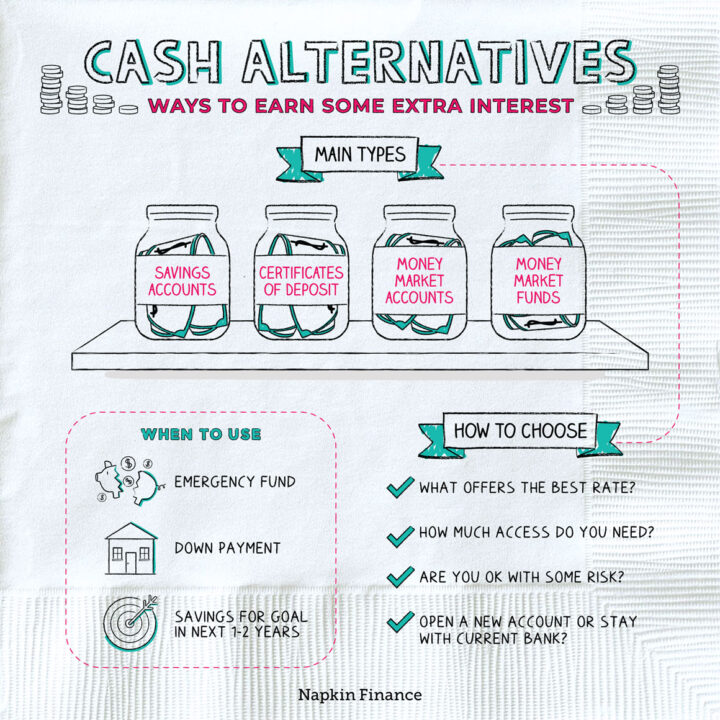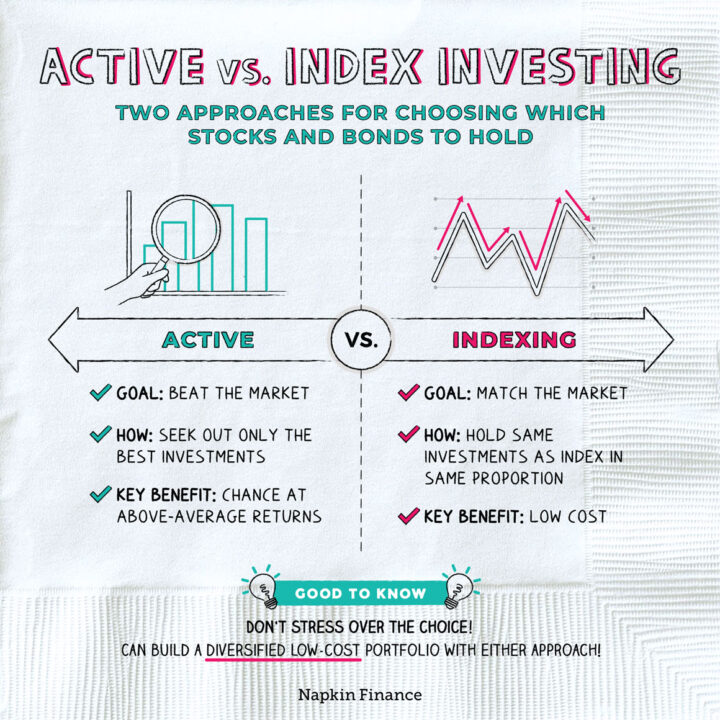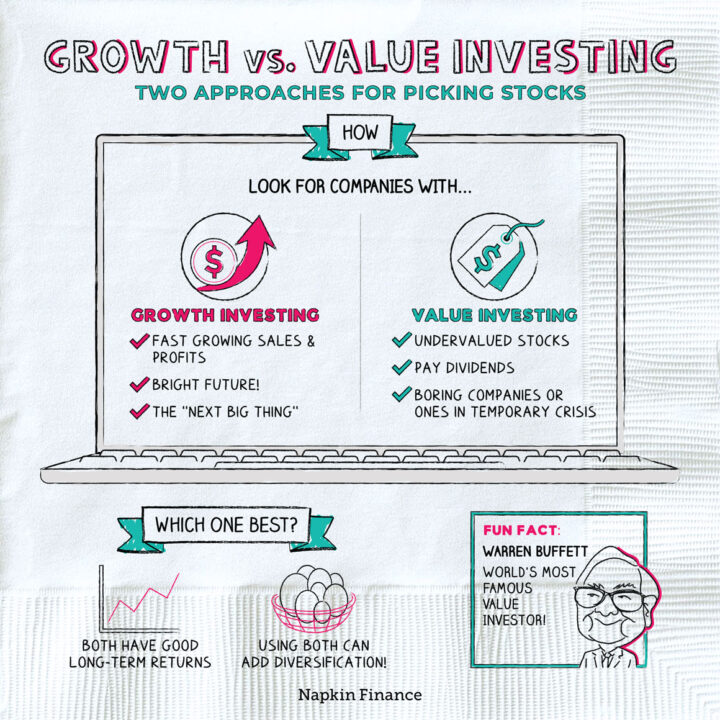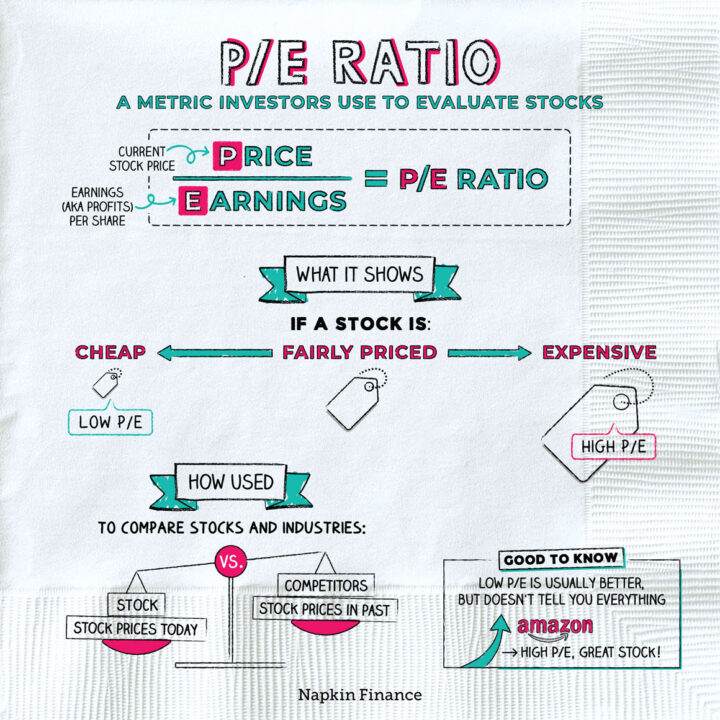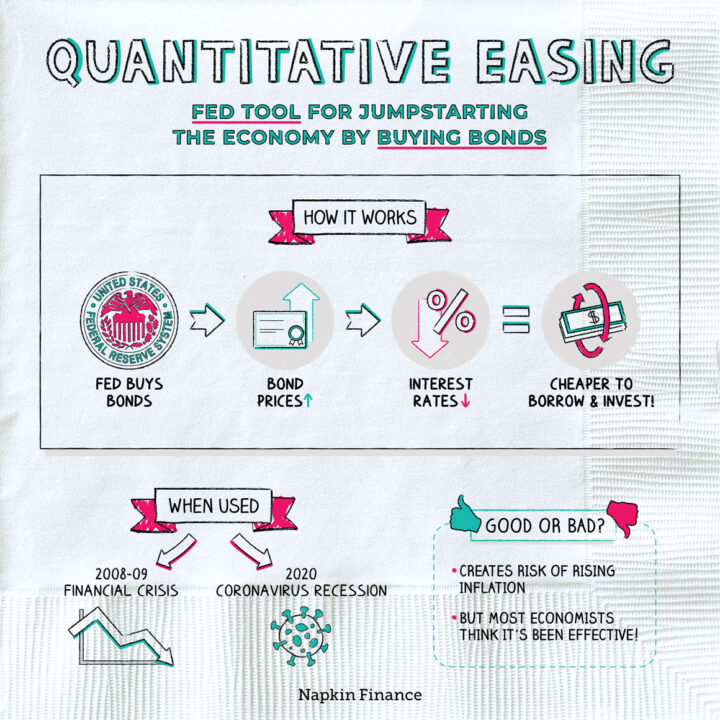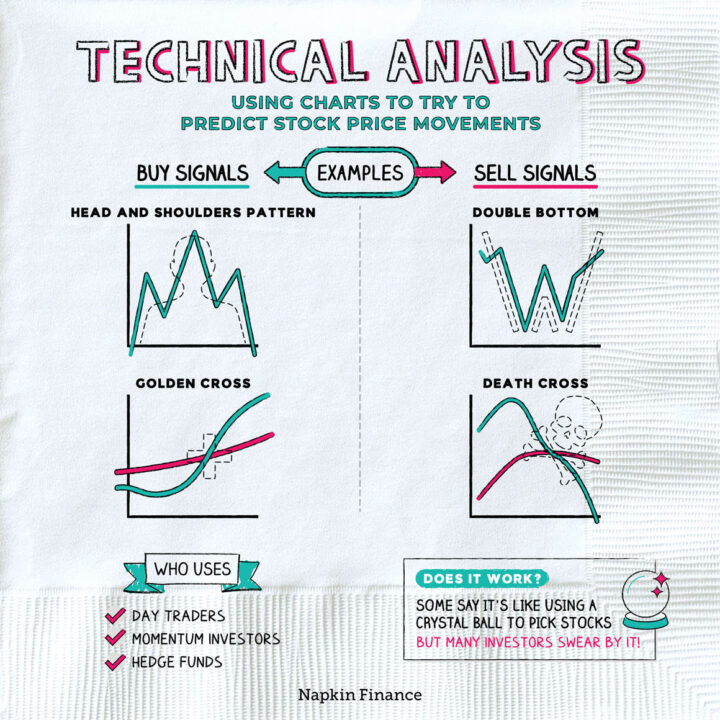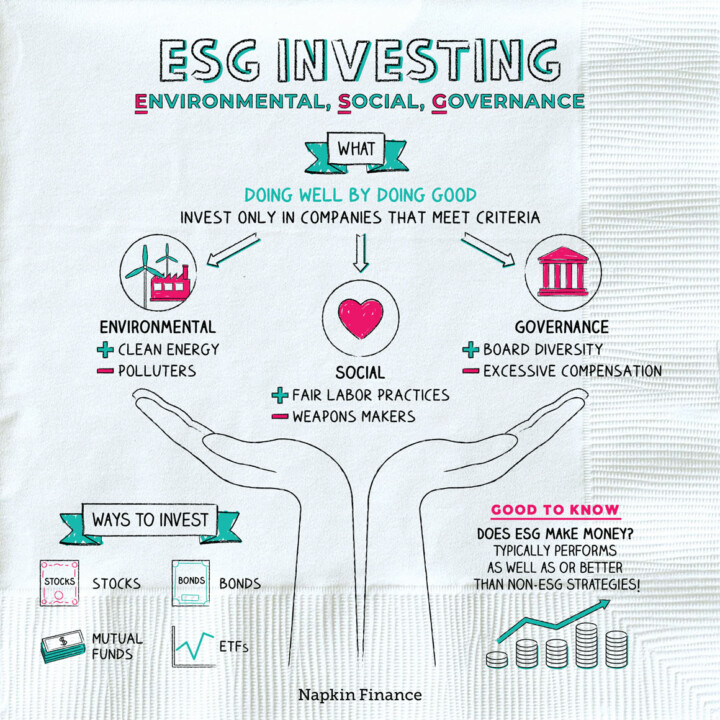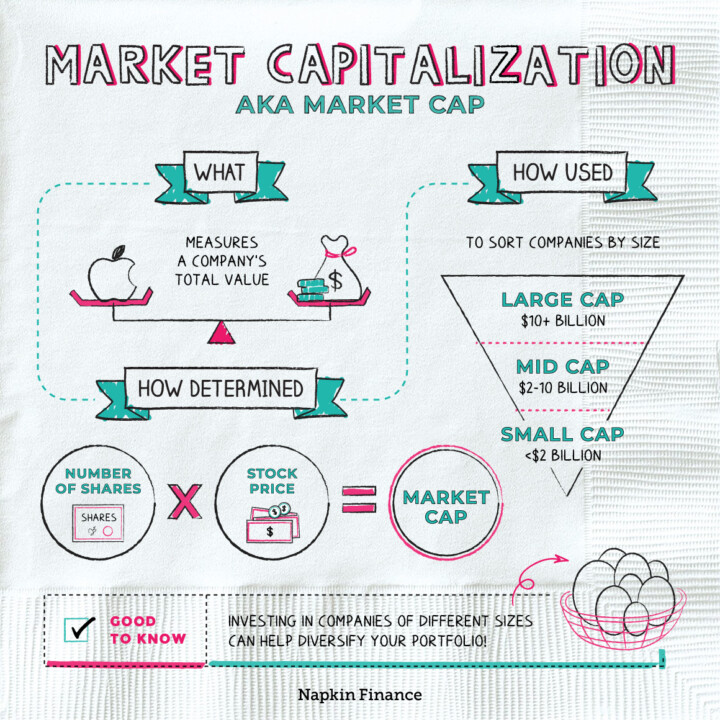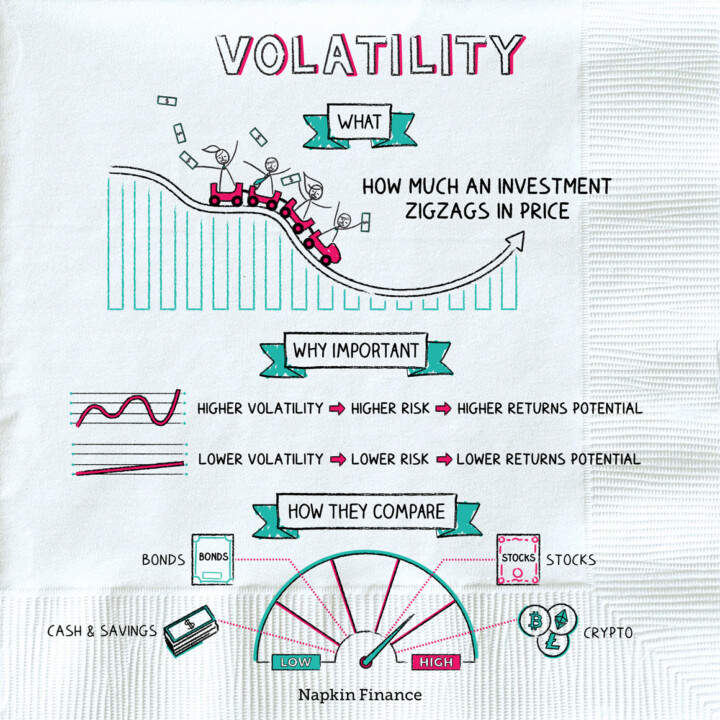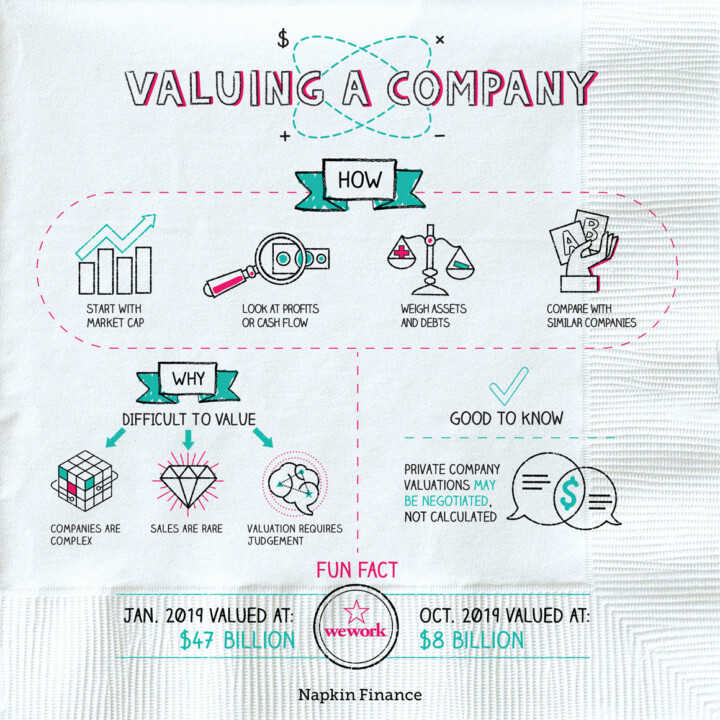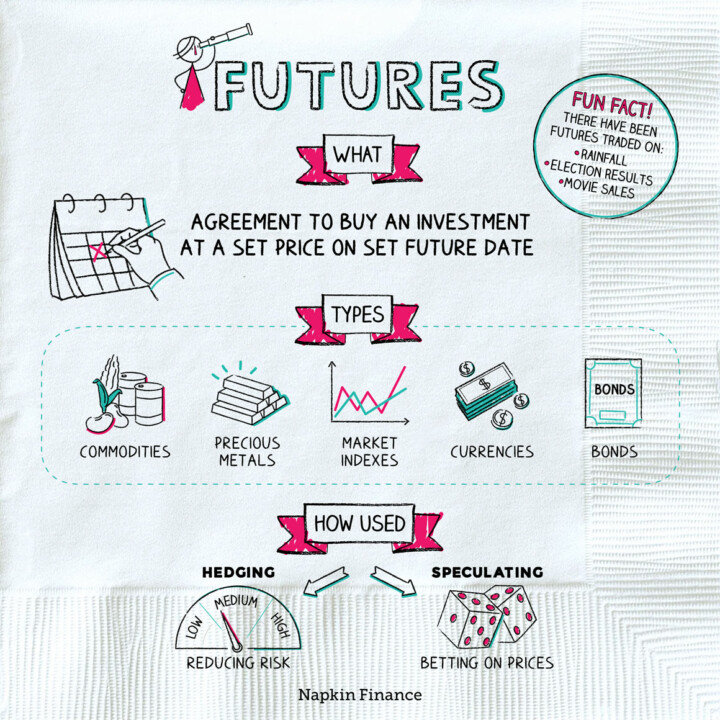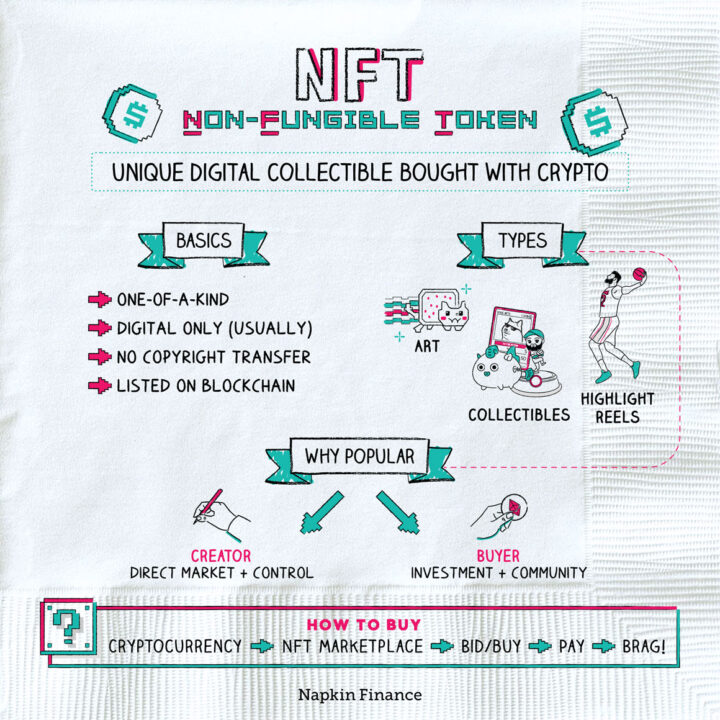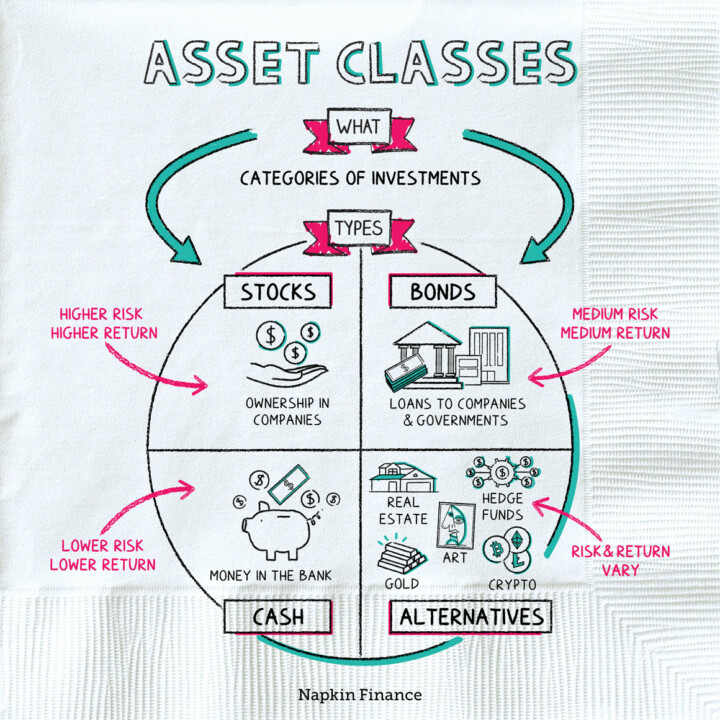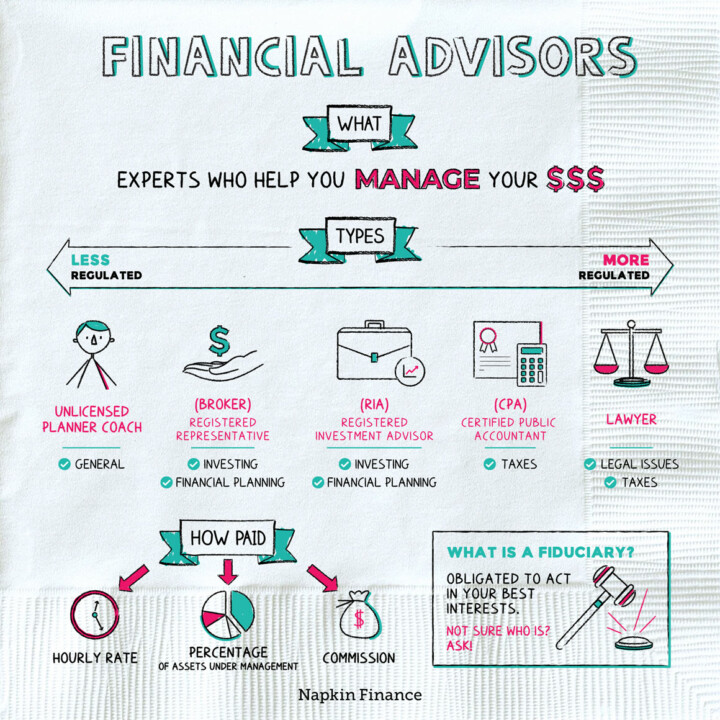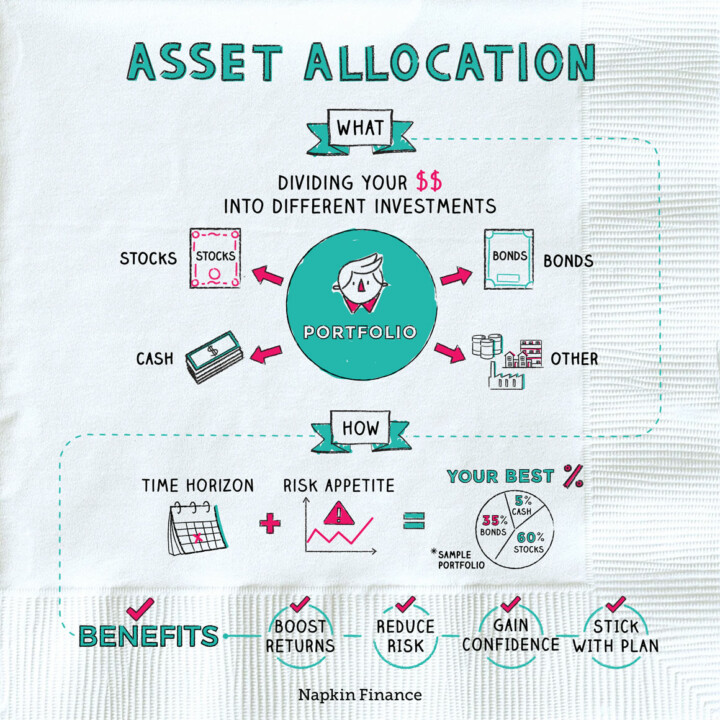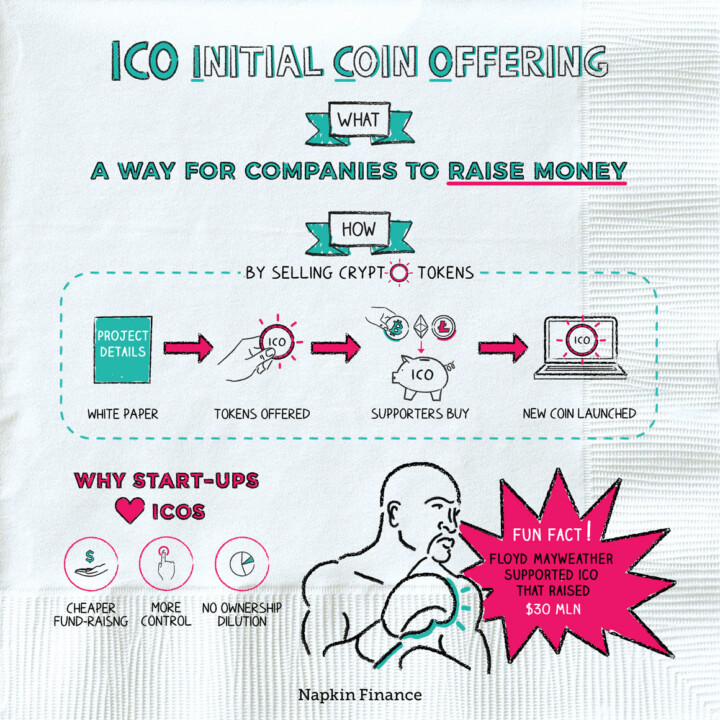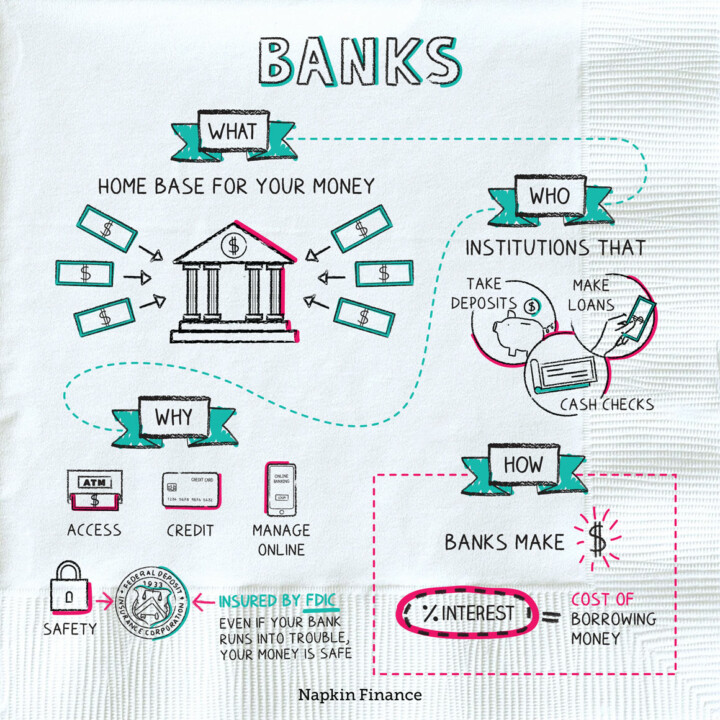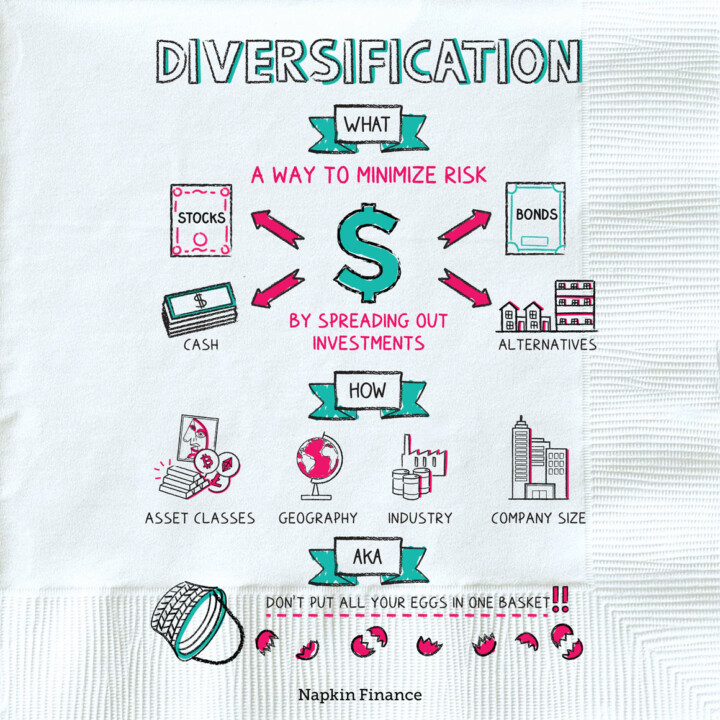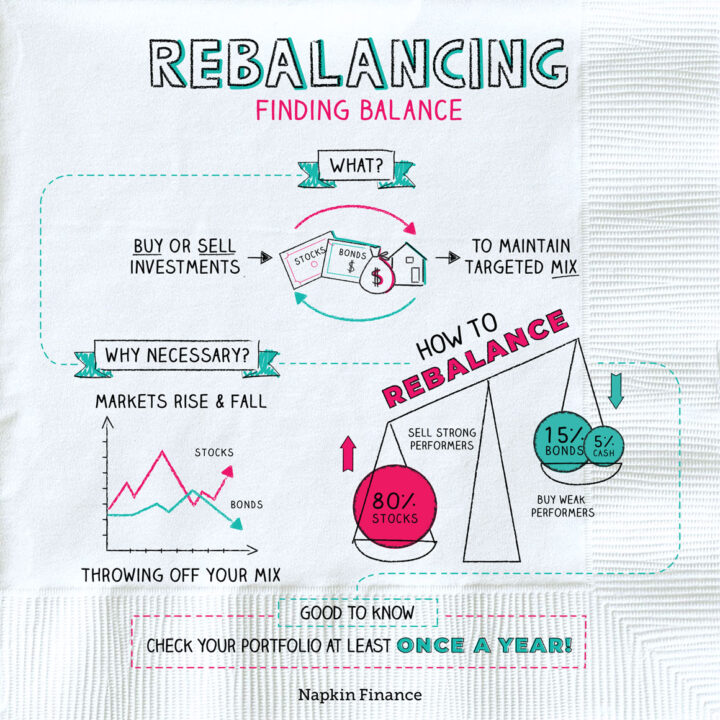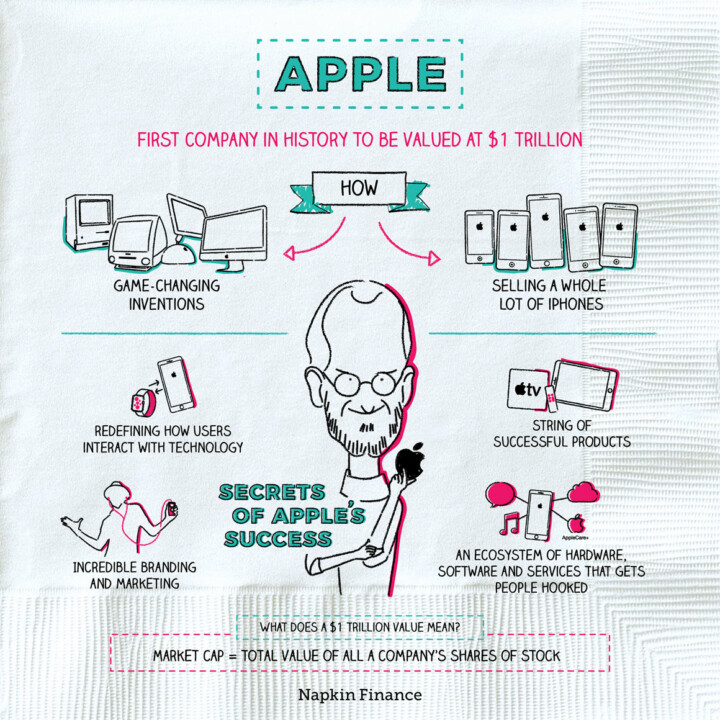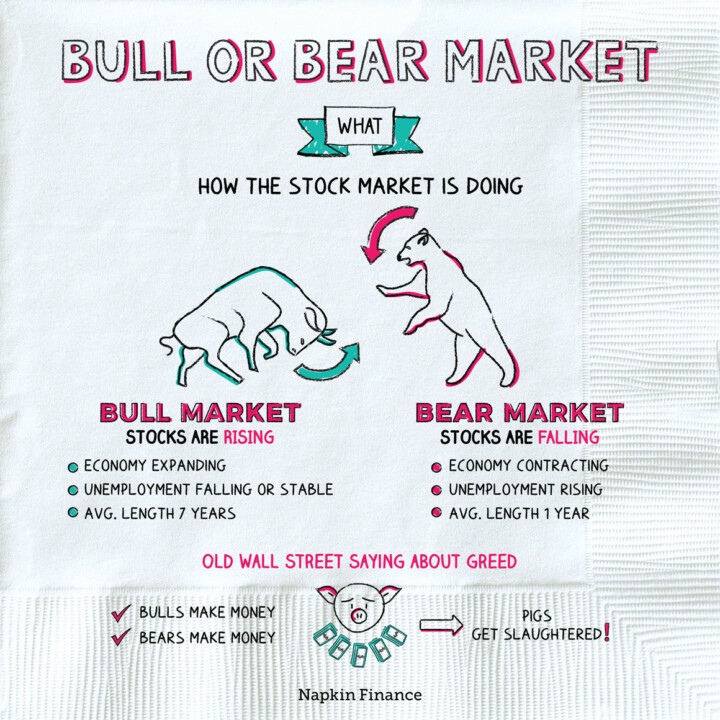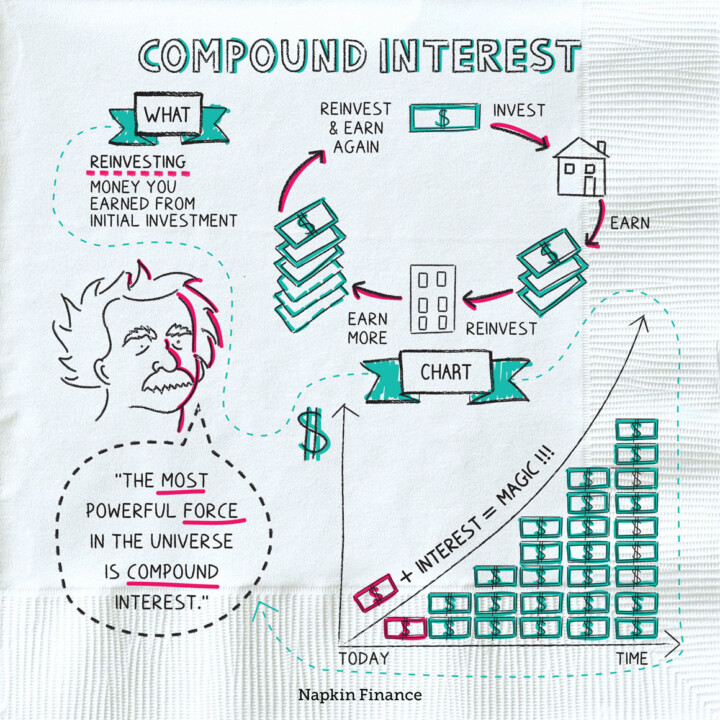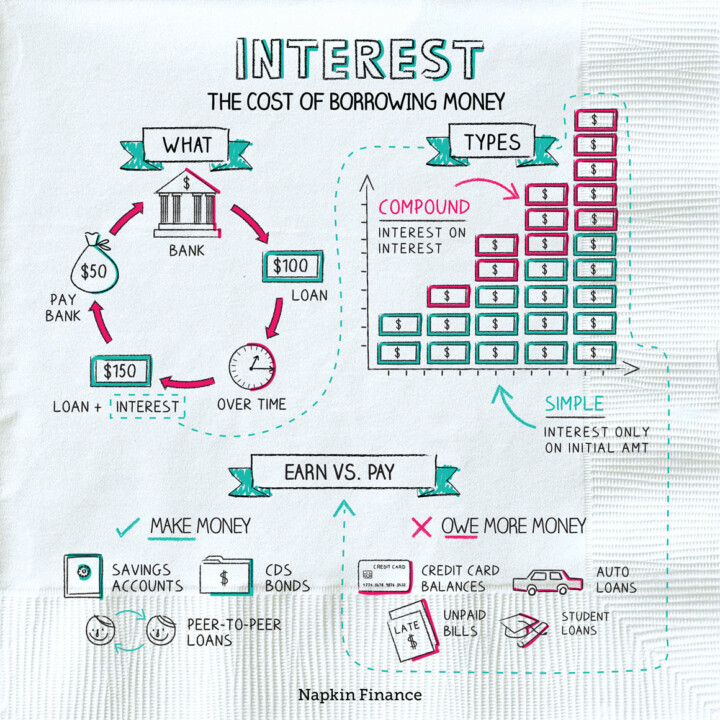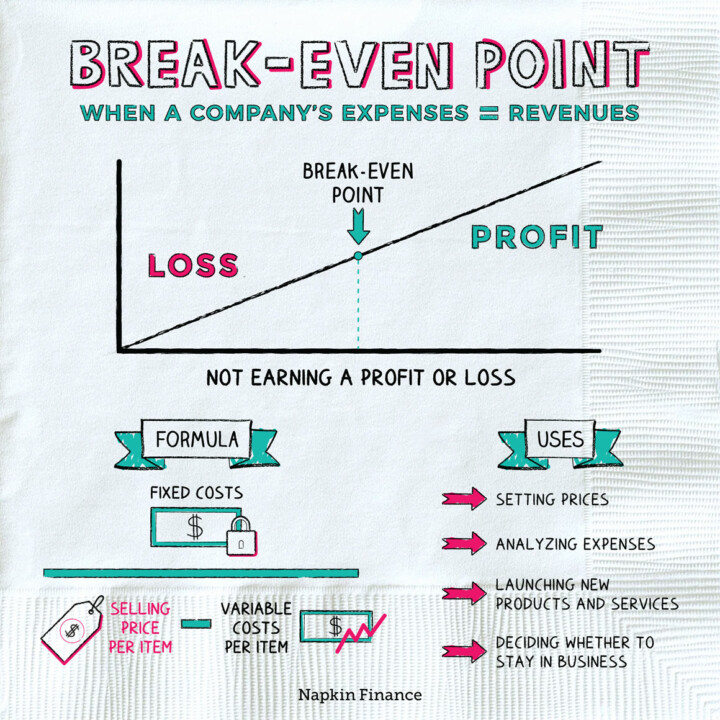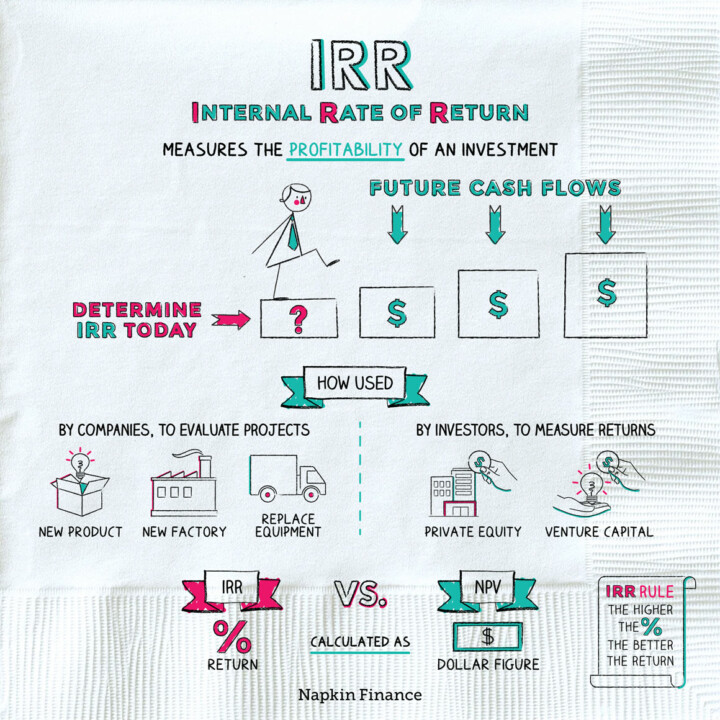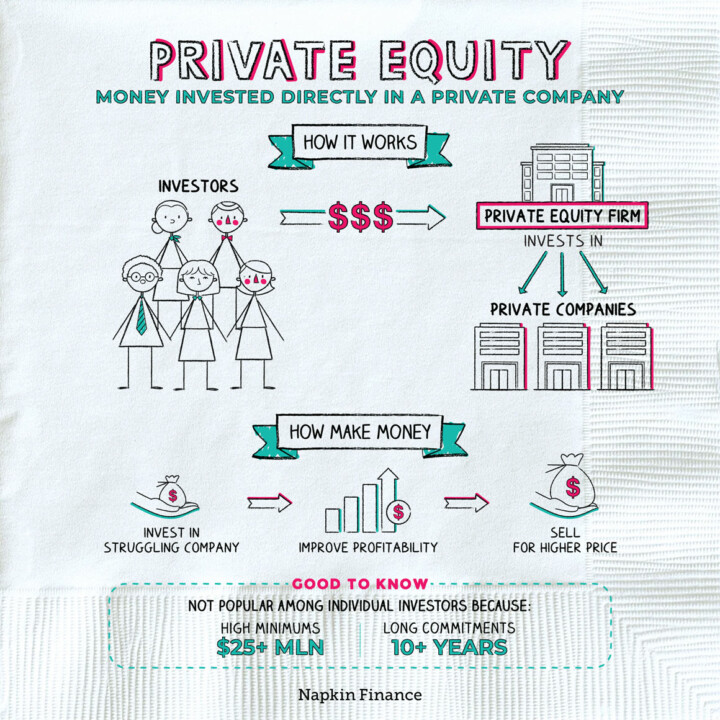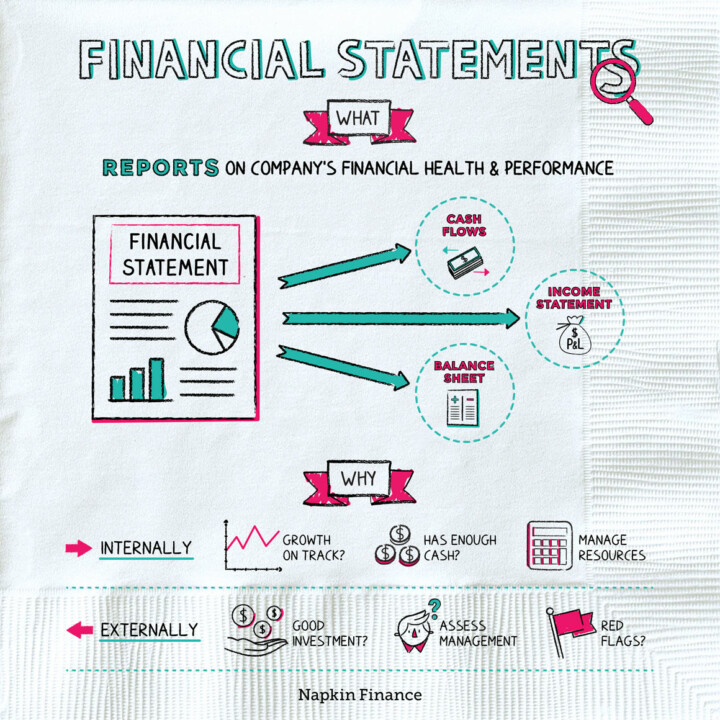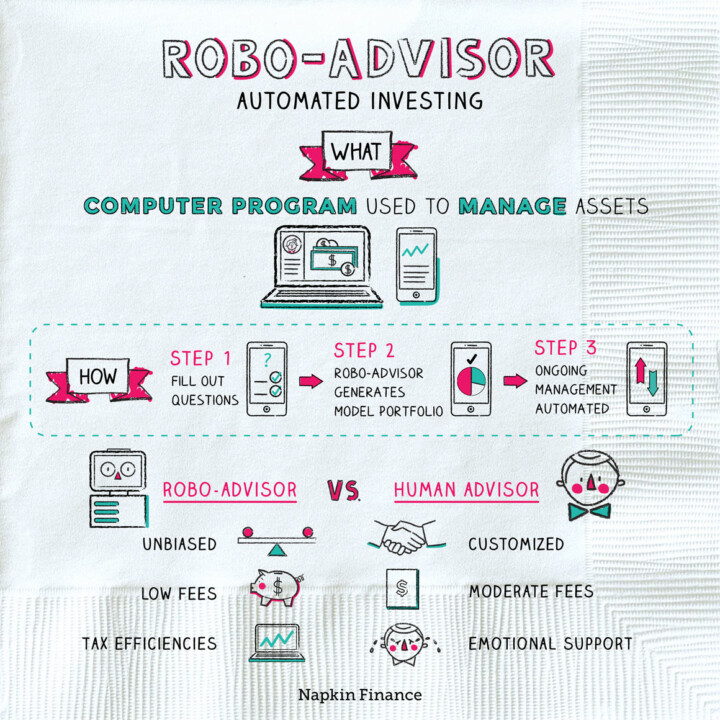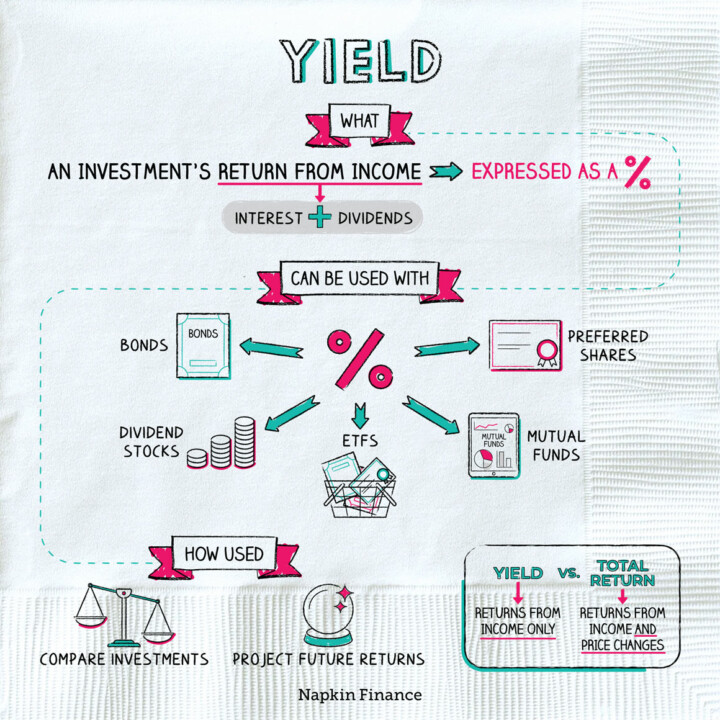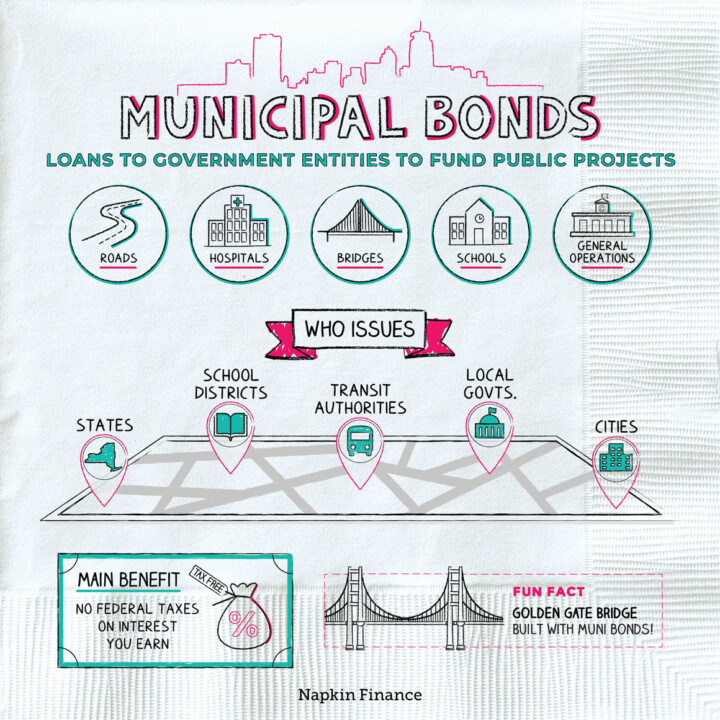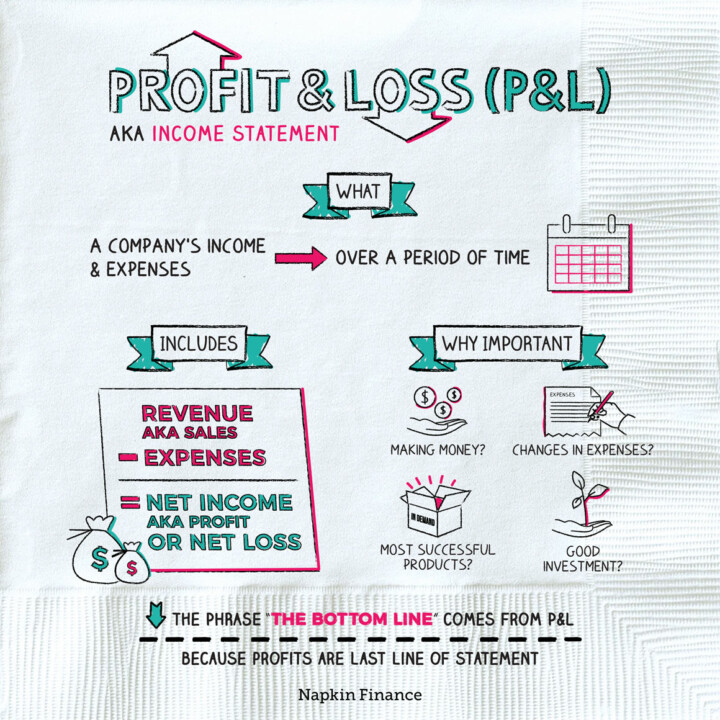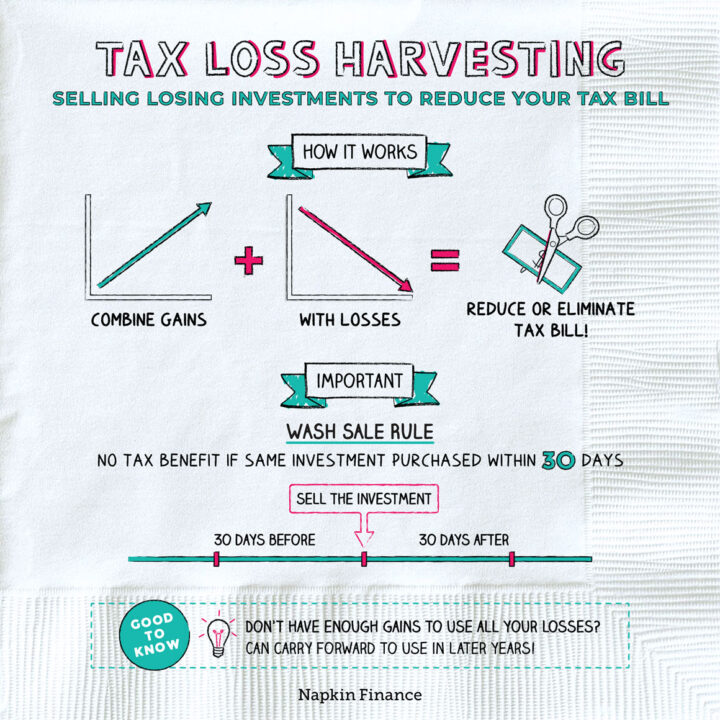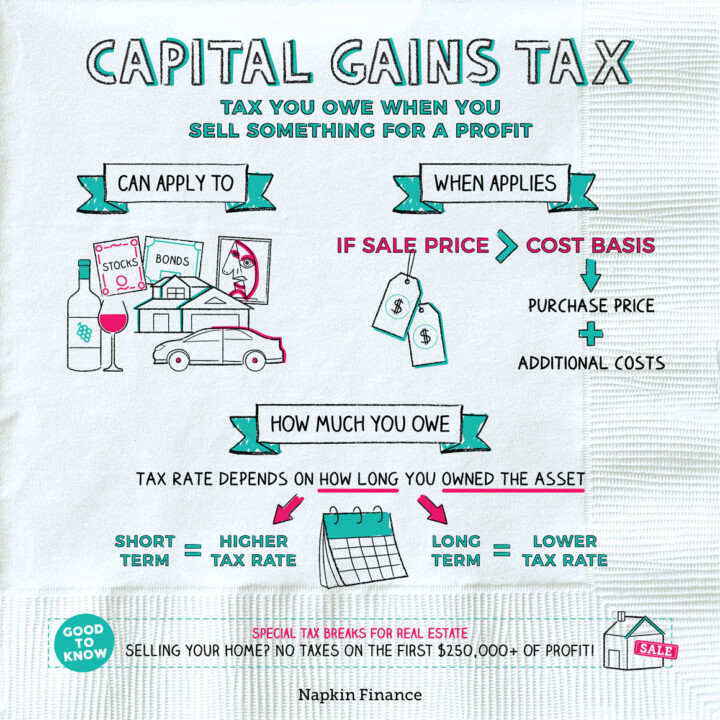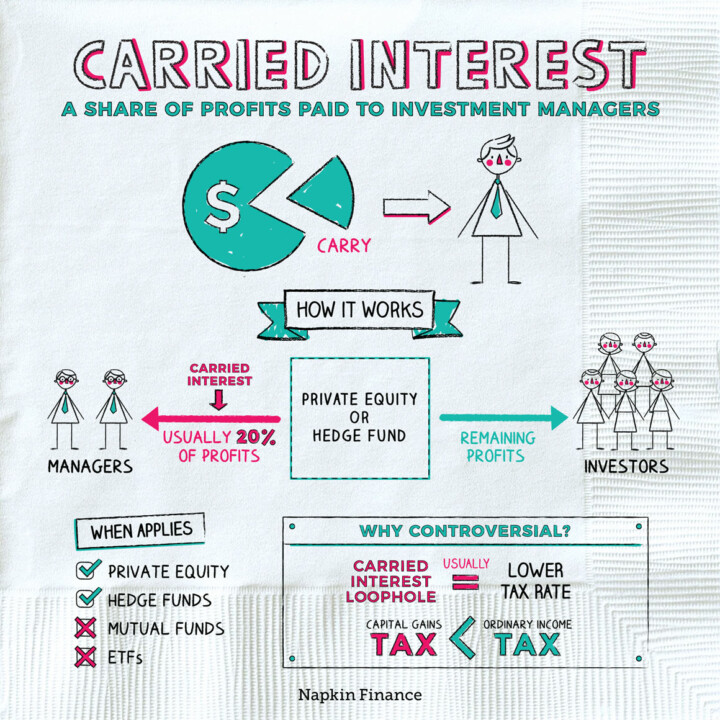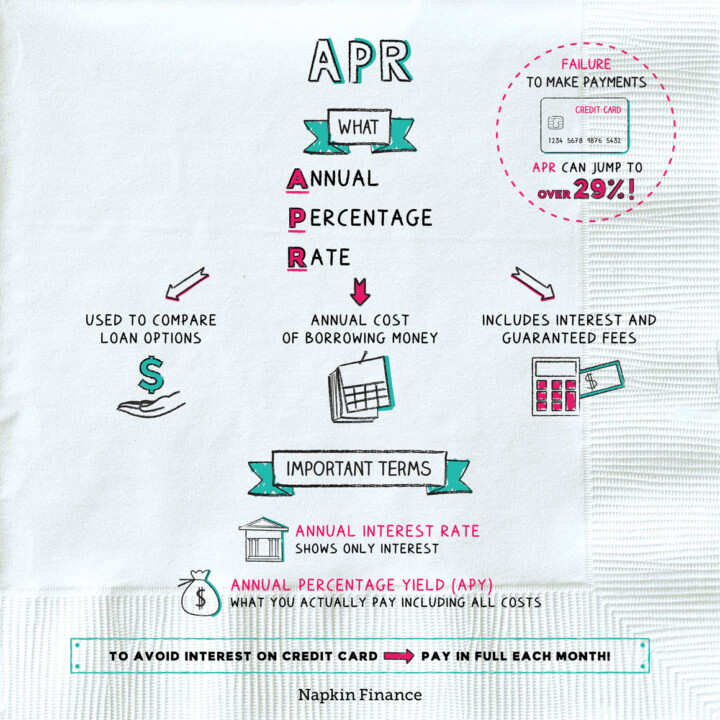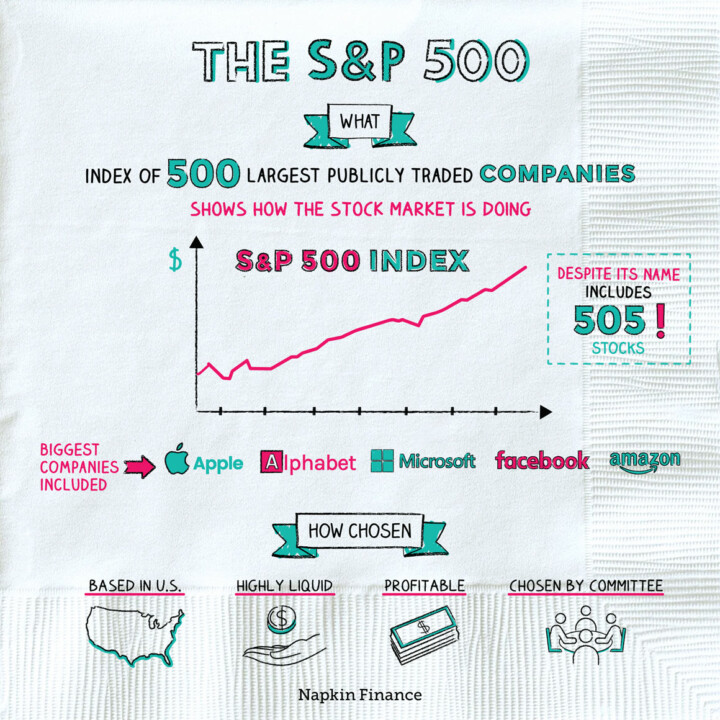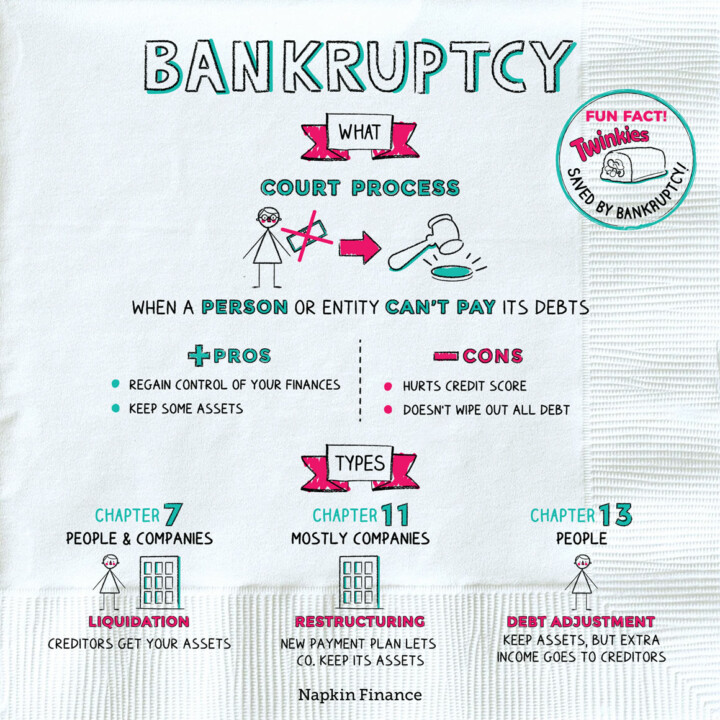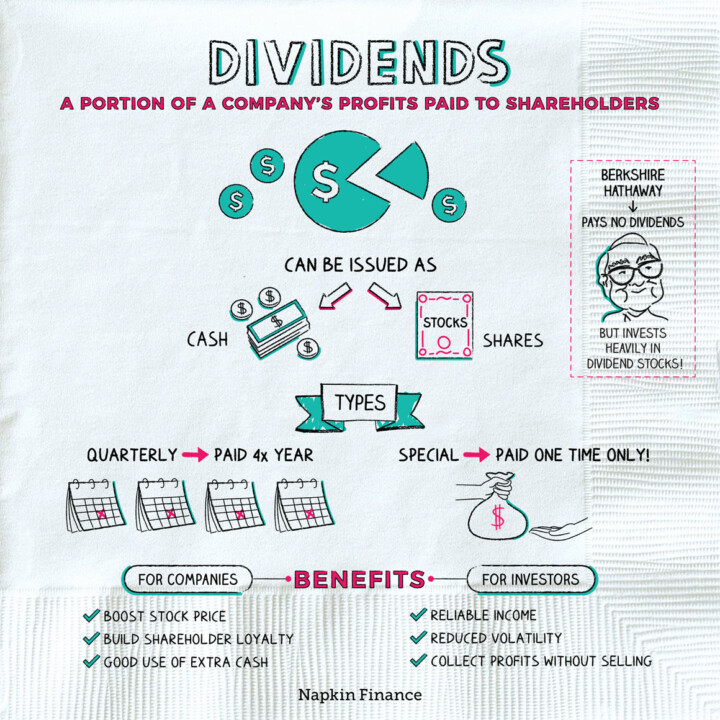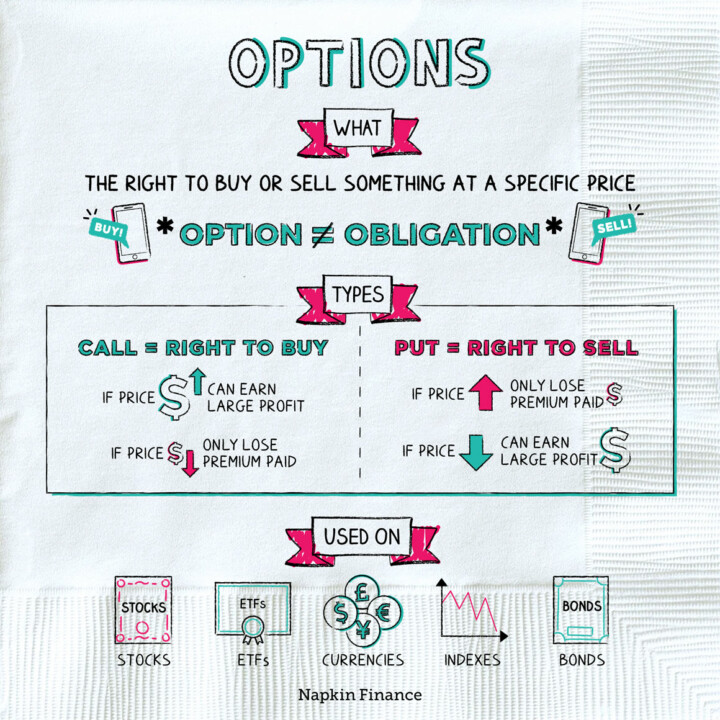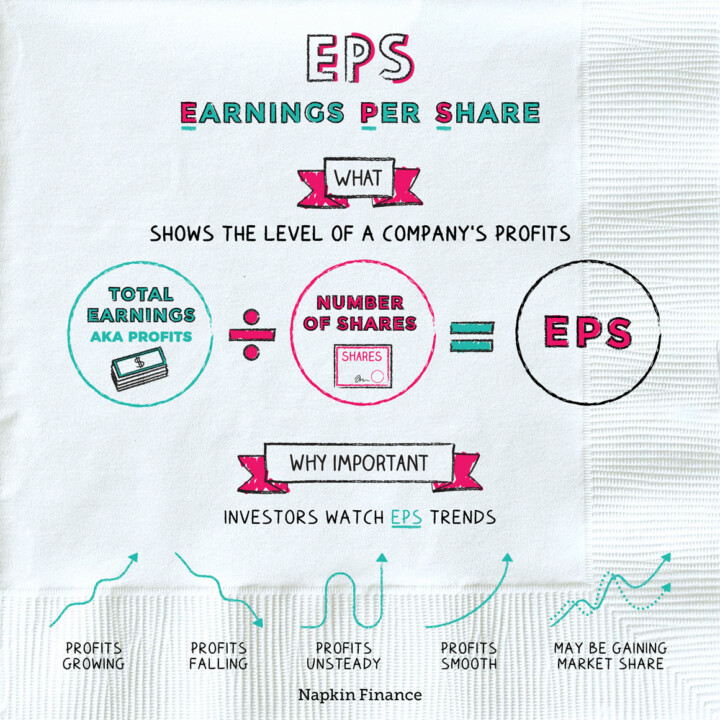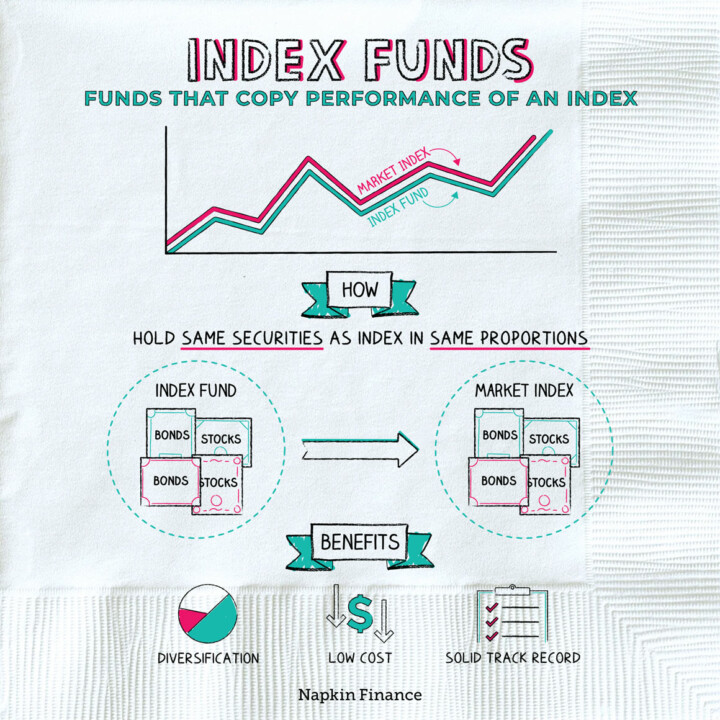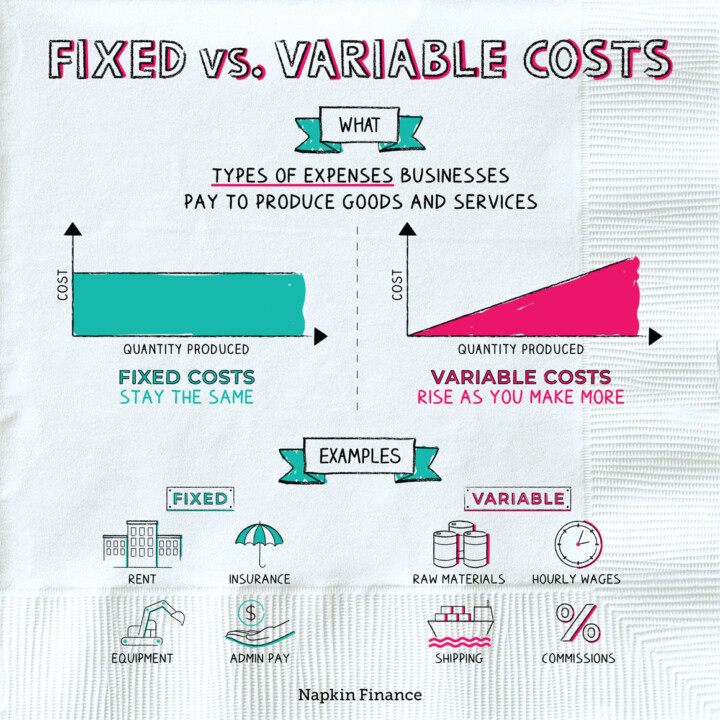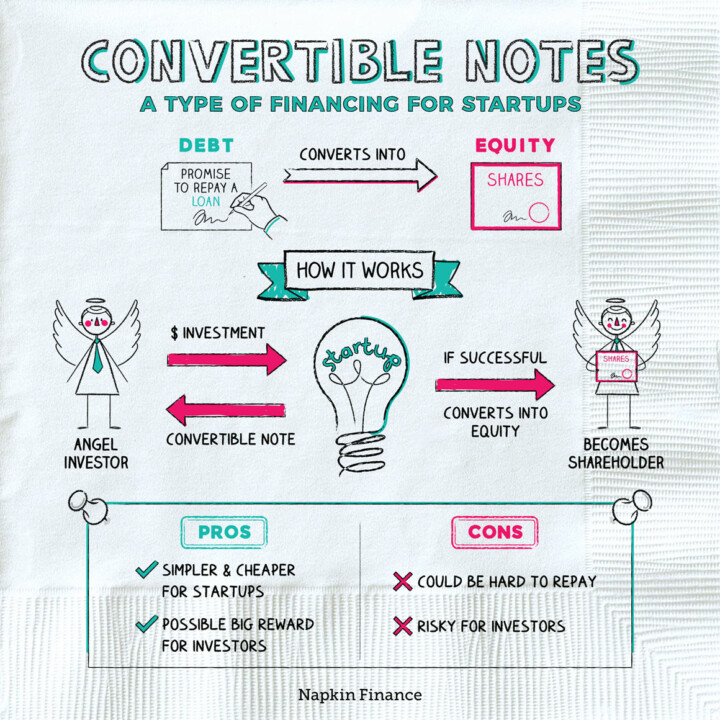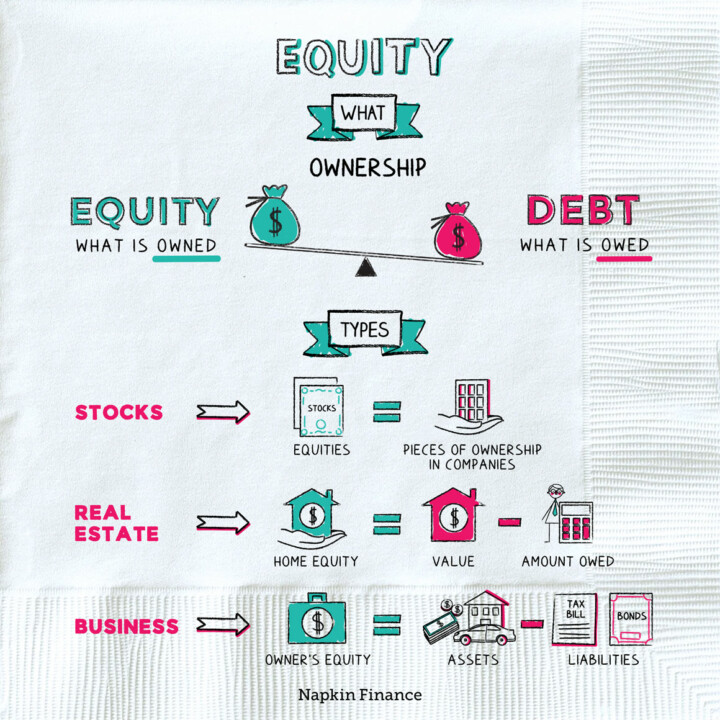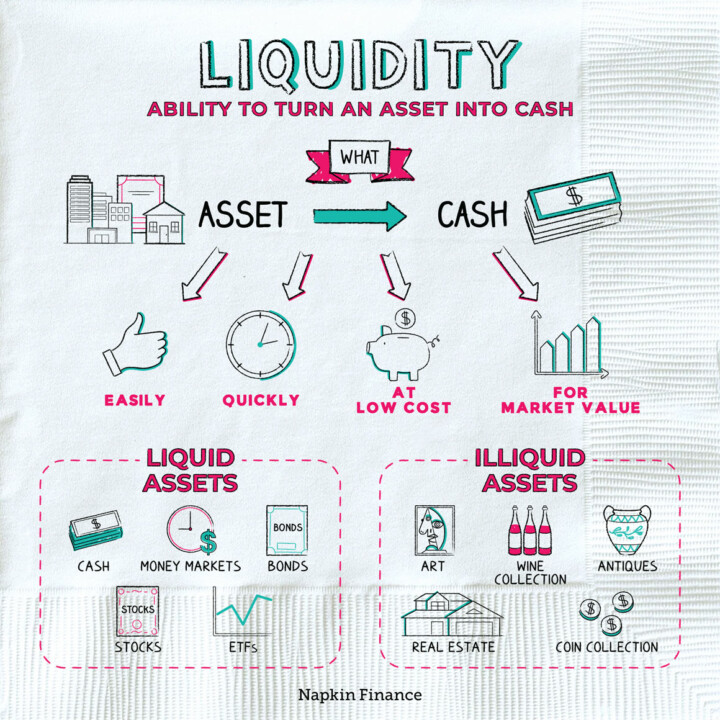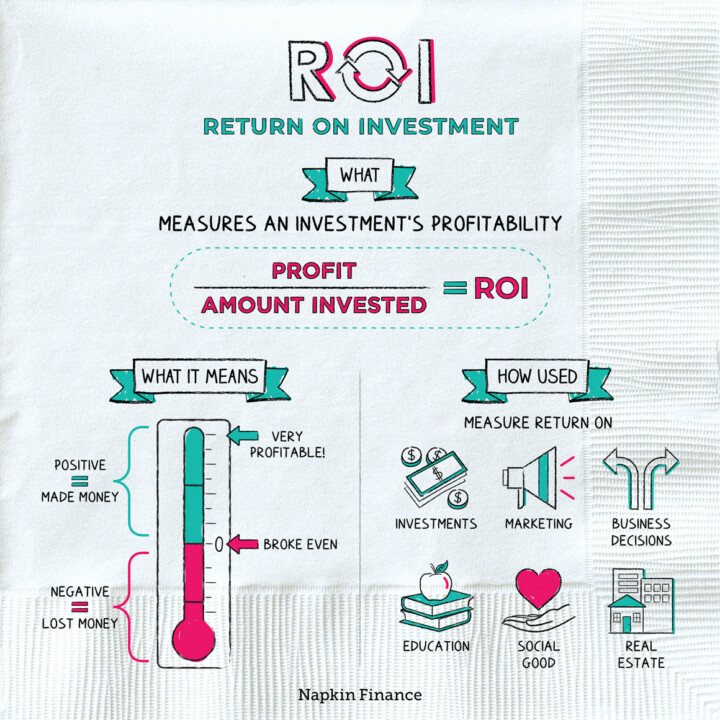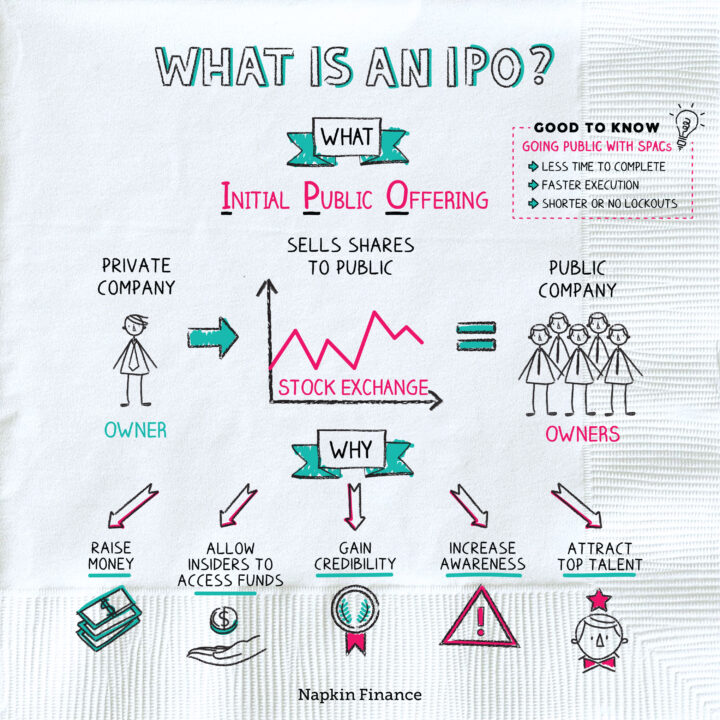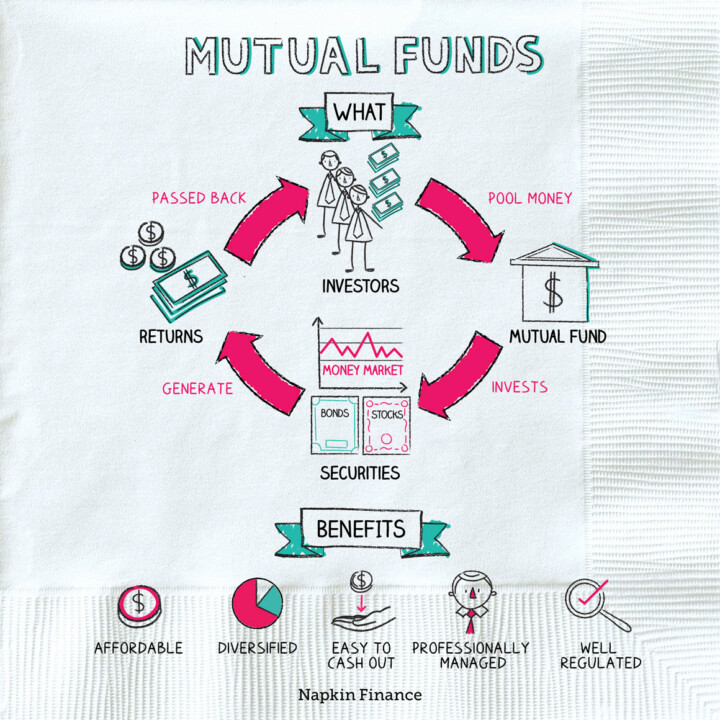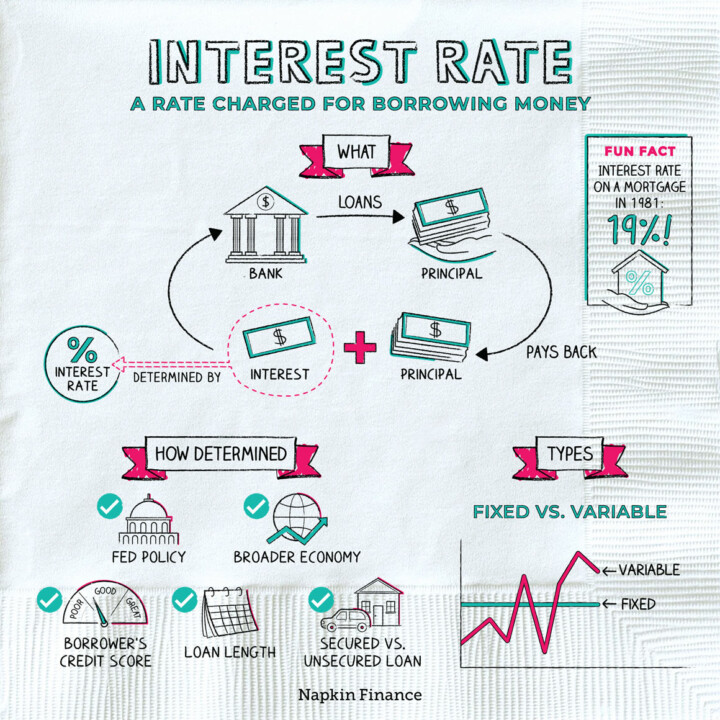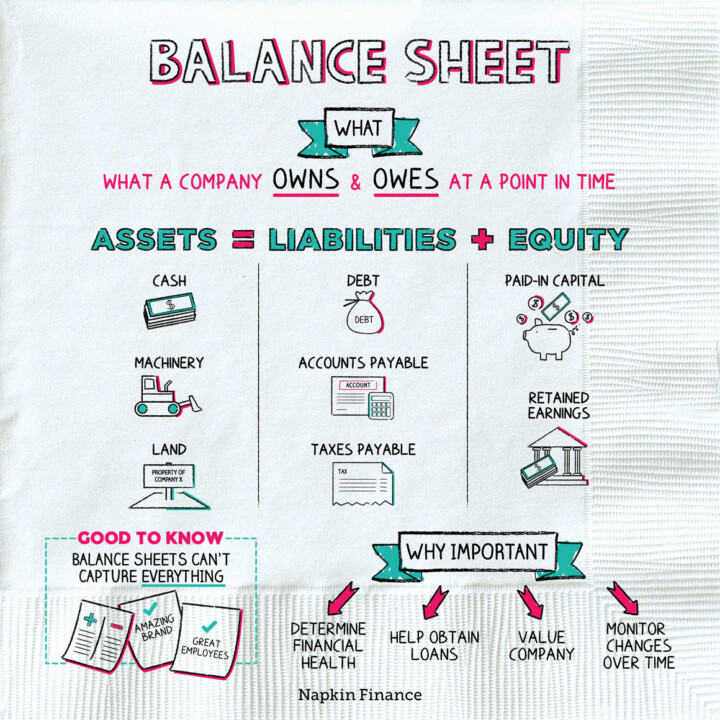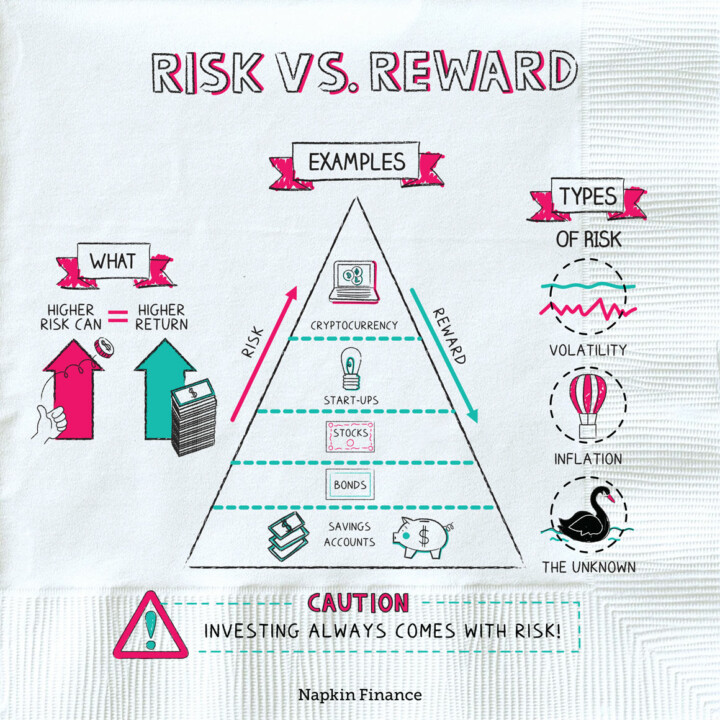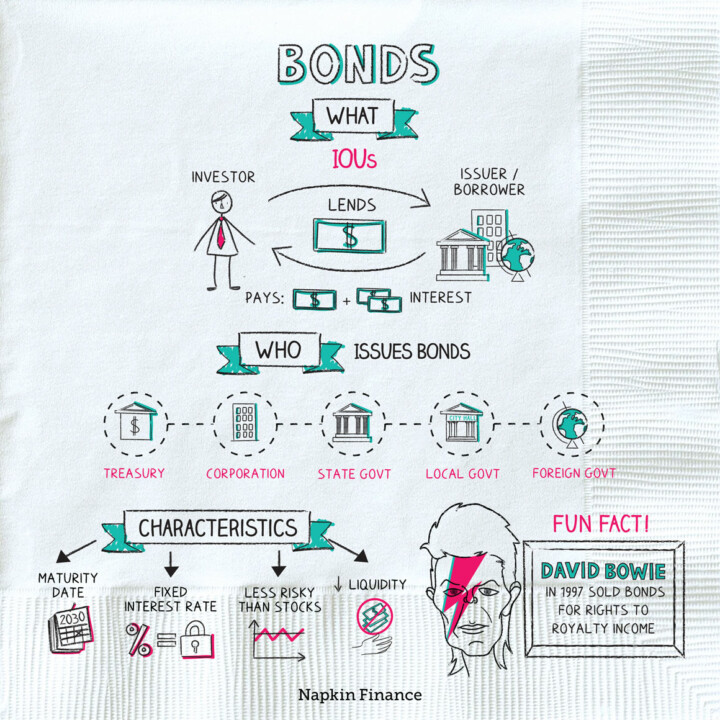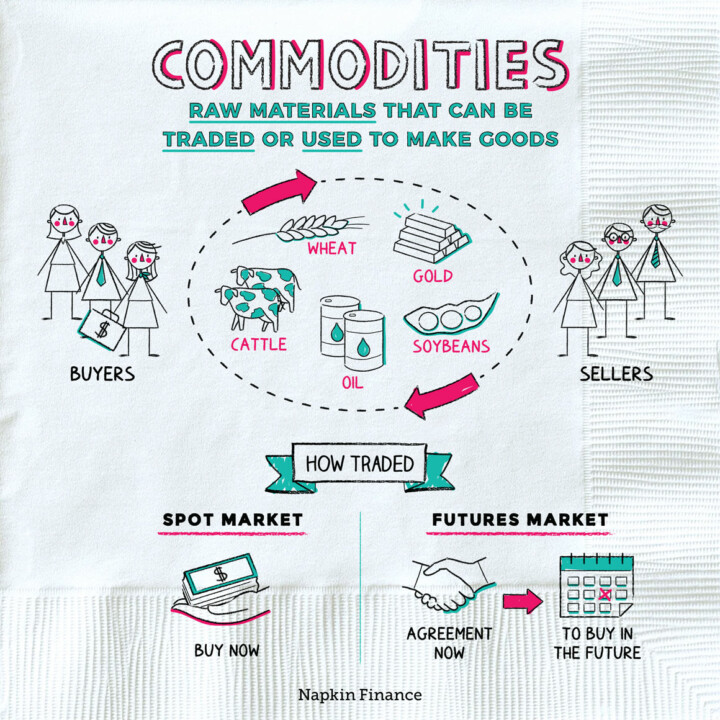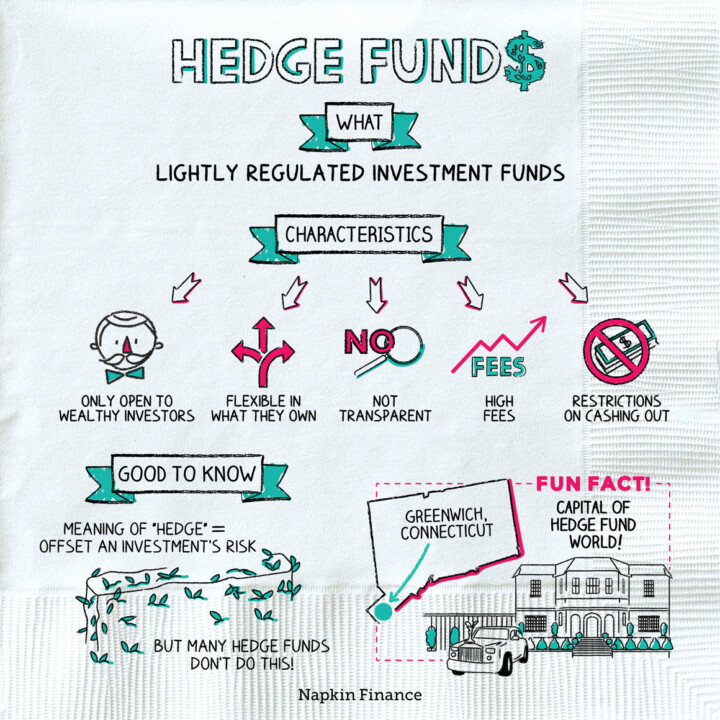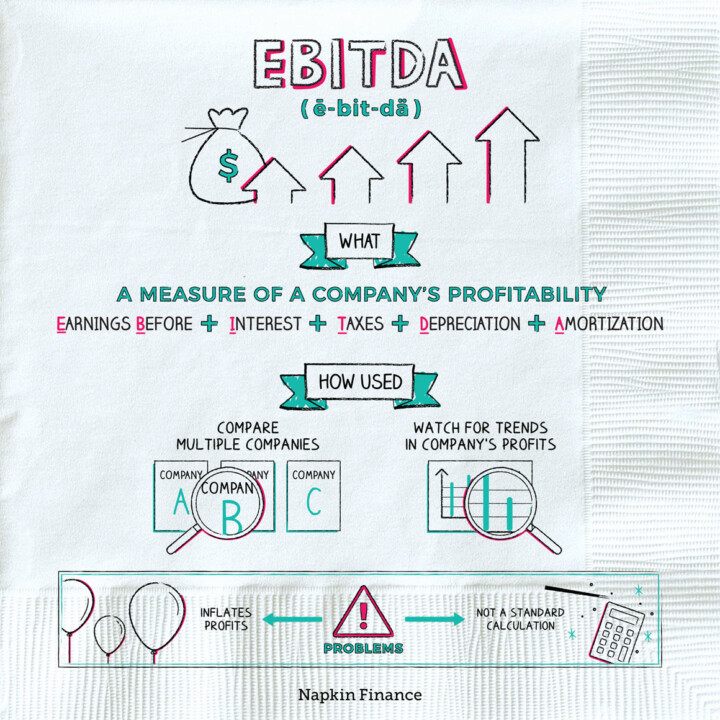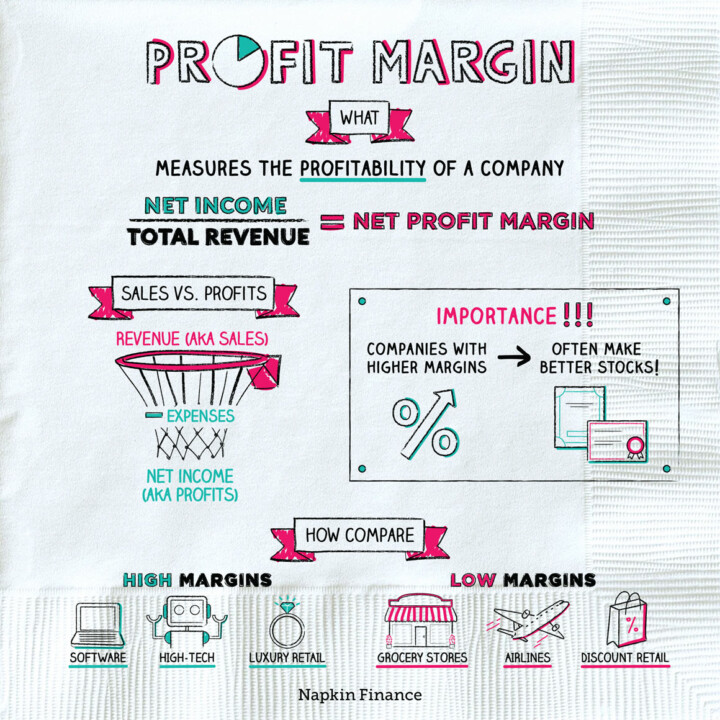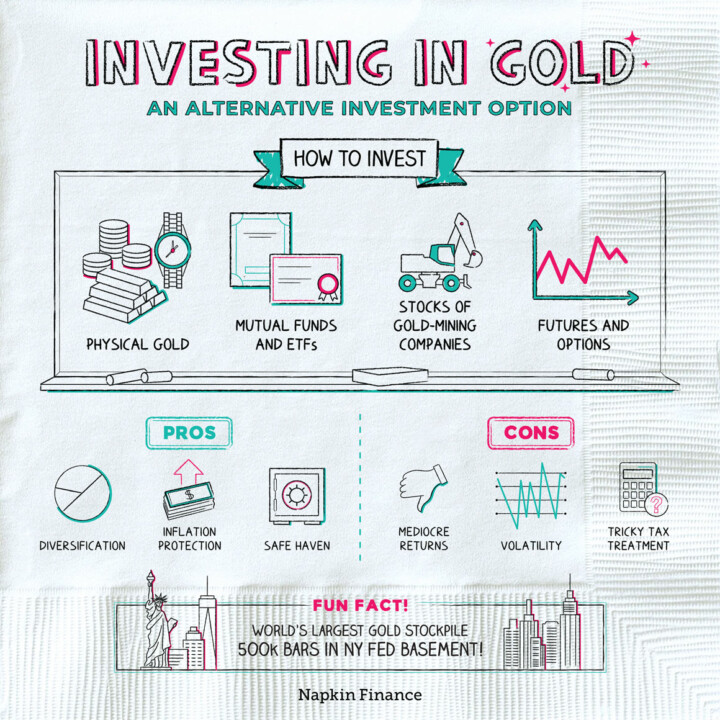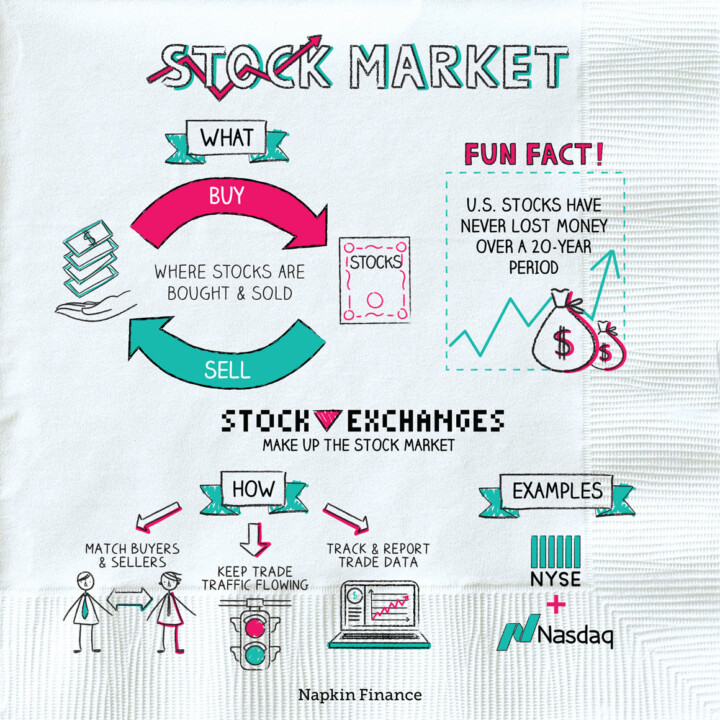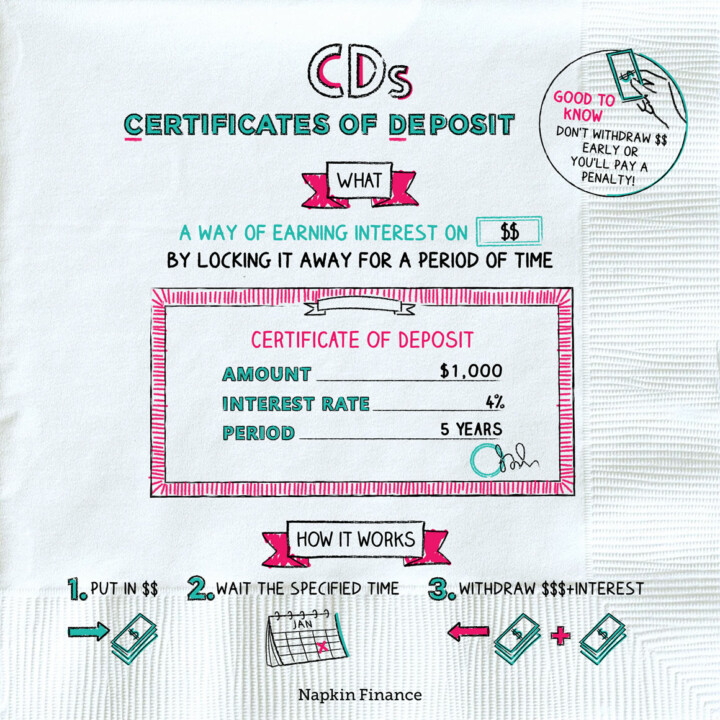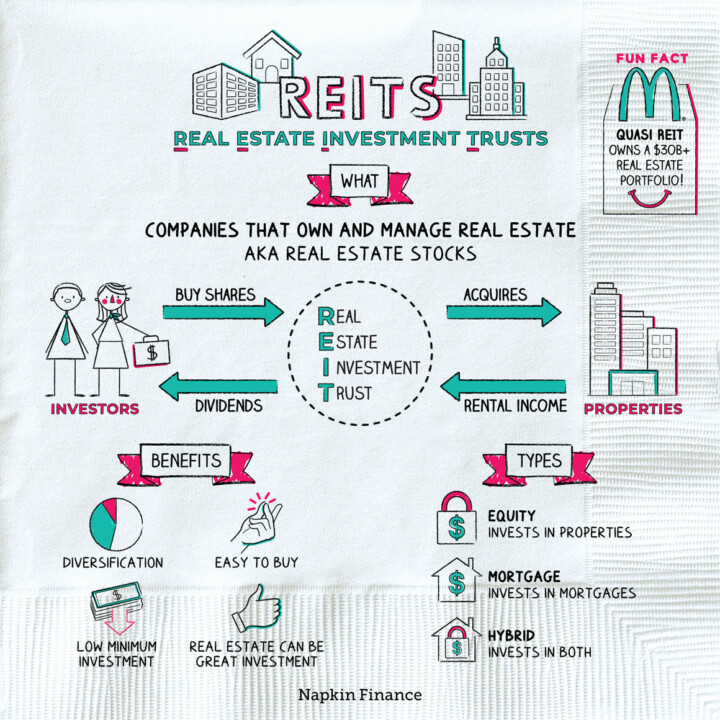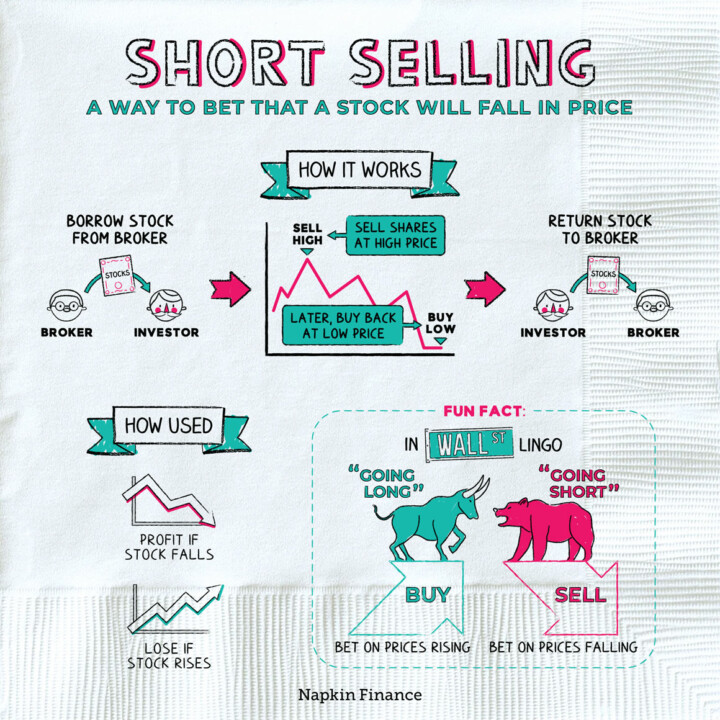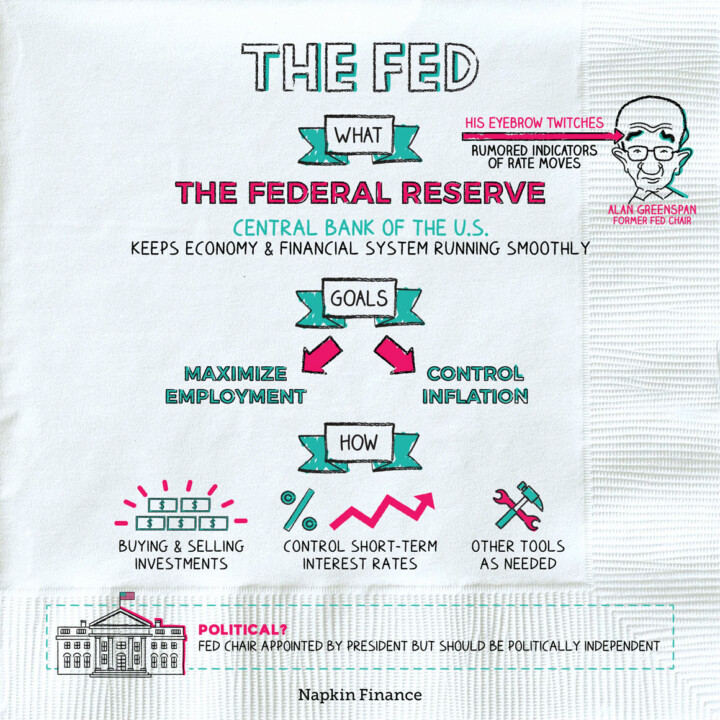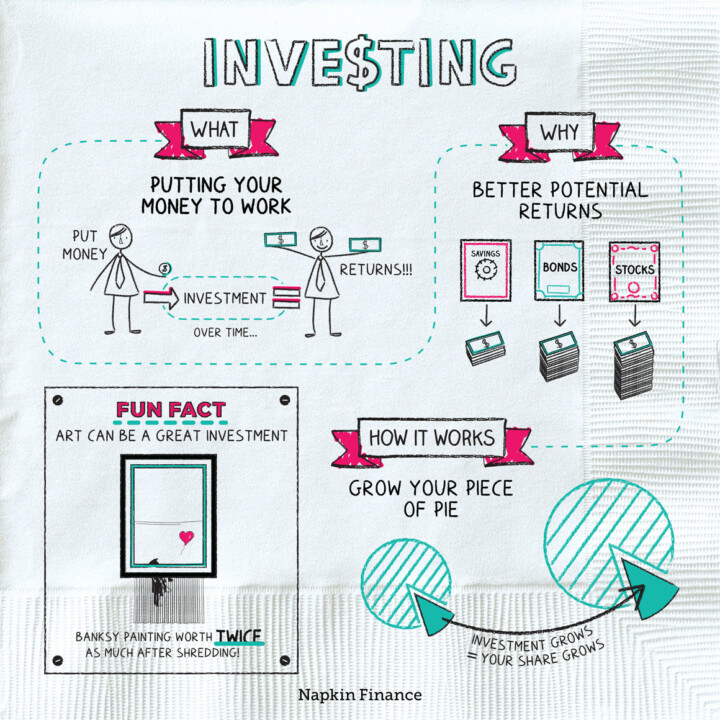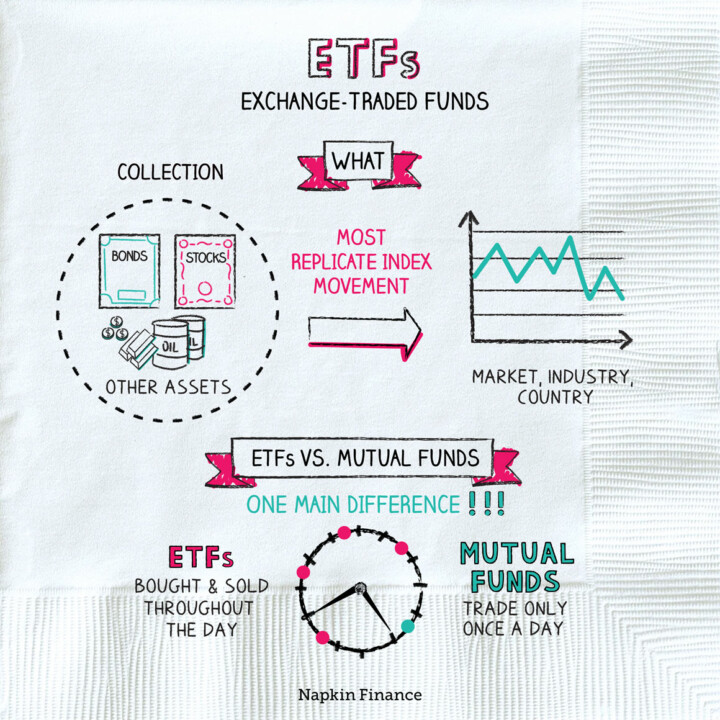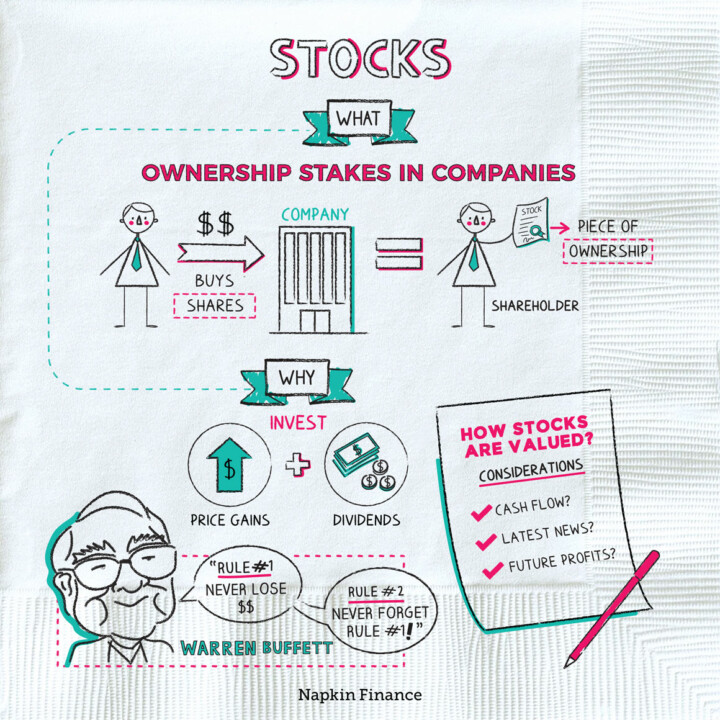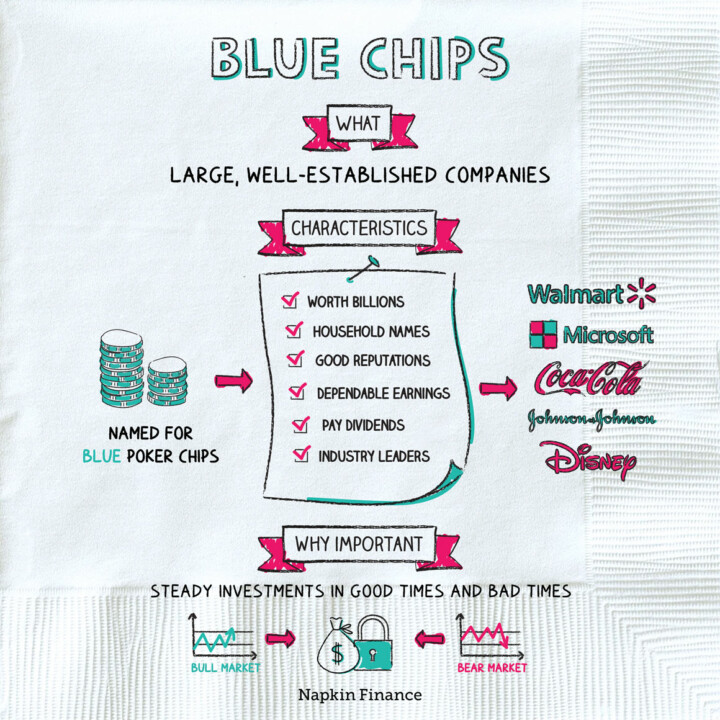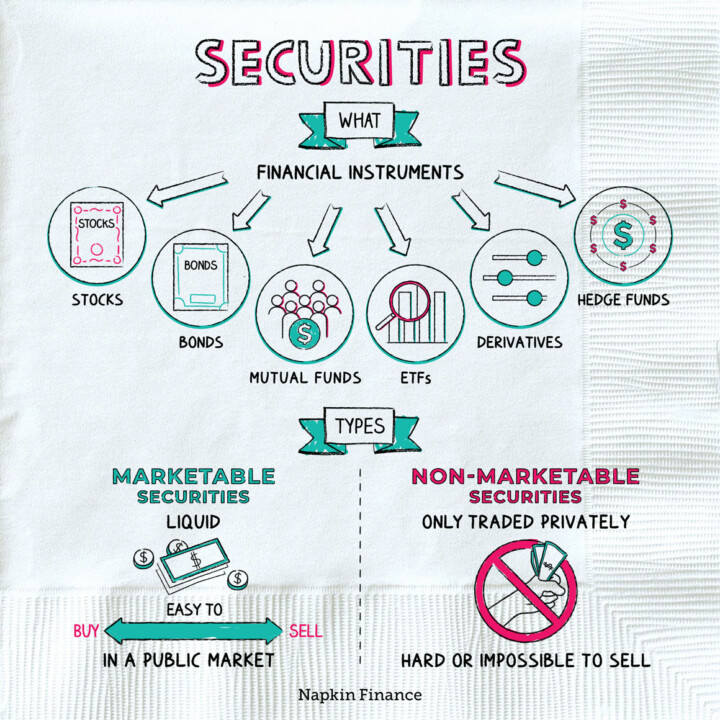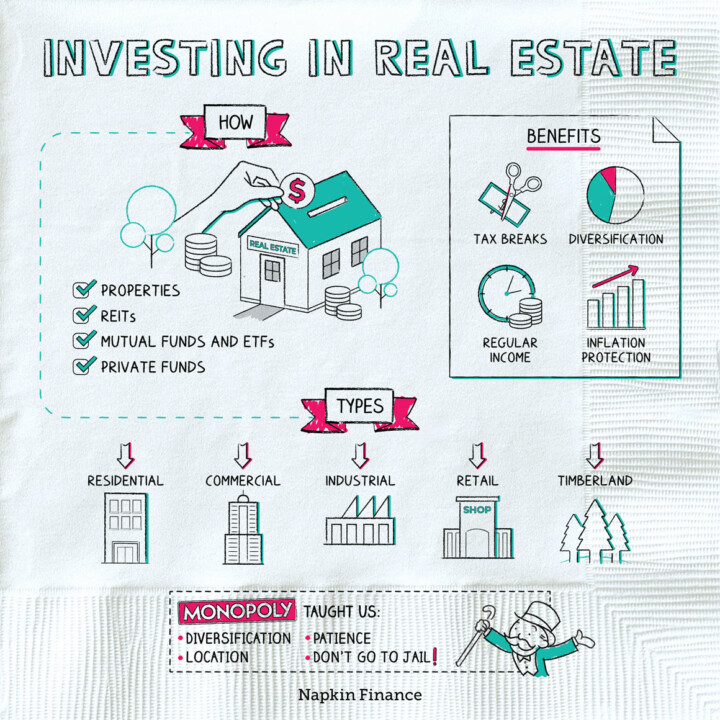Featured Napkin
Depreciation
Wear and Tear
Depreciation is a physical asset’s loss of value over time. Just as your once new car is worth less today than it was when you bought it (even if you’ve kept it in perfect condition), lots of physical assets lose value over time due to wear and tear and age....
Learn moreMore investing Napkins...
Risk Tolerance
Appetite for Destruction
Risk tolerance describes how much risk you can (or should) be taking on with your investments. Investing...
Learn moreCash Alternatives
Cash In
Cash alternatives are investment types that you can consider as alternatives to simply holding money in your...
Learn moreActive vs. Index Investing
Pick Sides
Active and index investing are two different ways of choosing individual investments. With active investing, investors try...
Learn moreGrowth vs. Value Investing
Moves Like Buffett
Growth and value investing are two different approaches to investing in stocks. Growth investors aim to invest...
Learn moreP/E Ratio
At Any Price
The price-to-earnings ratio (or P/E ratio) is a way to evaluate whether a company’s stock is cheap,...
Learn moreQuantitative Easing
Easy Money
Quantitative easing is when the Fed (or another country’s central bank) buys up large amounts of bonds....
Learn moreTechnical Analysis
Off the Charts
Technical analysis means using stock price charts to try to predict future stock price movements. It involves...
Learn moreESG Investing
Do the Right Thing
ESG investing means investing in companies that do good (or at least don’t actively do harm). With...
Learn moreVenture Capital
Nothing Ventured, Nothing Gained
Venture capital (or “VC” for short) is a type of financing for startup companies. Venture capitalists invest...
Learn moreTarget-Date Funds
Bullseye on Retirement
A target-date fund is an investment fund that’s based on your expected retirement date. These mutual funds...
Learn moreMarket Capitalization
Size it Up
Market capitalization (or just “market cap”) is a measure of a company’s total value. If you ever...
Learn moreVolatility
Rocky Road
Volatility describes how much an investment bounces around in price. More volatile investments zigzag in price more...
Learn moreValuing a Company
What’s it Worth?
A company’s value is the dollar figure that it might sell for if a person or another...
Learn moreFutures
Looking Ahead
A futures contract is an agreement to buy a specific investment at an agreed-upon price on an...
Learn moreForex
Hard Currency
The foreign exchange, or forex, markets are where investors go to buy and sell currencies. Unlike the...
Learn moreNFTs
(Not So) Real World
An NFT, or non-fungible token, is a code that says you own a unique digital item.
Learn moreAsset Classes
Building Blocks
An asset class is a group of similar kinds of investments. It’s a generalization, not a detailed...
Learn moreFinancial Advisors
Get Some Help
Financial advisors are experts who can provide financial advice and help you manage your money. Some people...
Learn moreAsset Allocation
Divide and Conquer
“Asset allocation” is a way of describing what you own in percentage terms. If you’ve got $1,000...
Learn moreWhat Is an ICO?
The Wild West of Finance
An ICO, or Initial Coin Offering, is a way for startups to raise money by inventing and...
Learn moreBanks
Bank on It
Banks are institutions that take deposits, cash checks, and make loans. They are essentially home bases for...
Learn moreDiversification
Spread Your Bets
Diversification is the practice of dividing your money among lots of different types of investments. It’s the...
Learn moreCryptocurrency
Tales of the Crypto
Cryptocurrency is digital money that can be sent electronically anywhere in the world.
Learn moreRebalancing
Move Your Assets
Know how self-help gurus are always talking about “finding the balance” in your personal life? That same...
Learn moreApple
The Big Apple
Apple was the first business in history to be valued at $1 trillion—the largest value ever recorded...
Learn moreBitcoin
Not So Silky Road
Bitcoin is the world’s first type of digital money, or cryptocurrency. Unlike traditional paper money, Bitcoin only...
Learn moreBull or Bear Market
Into the Wild
Wall Street may be a bit of a rodeo, but there are no literal bulls or bears....
Learn moreCompound Interest
Make Bank
The most powerful force in the universe is compound interest. — Albert Einstein
Learn moreInterest
Pay Up
Interest is the cost of borrowing money. For a borrower, interest is the price of taking on...
Learn moreBreak-Even Point
Point Break
A company is at its break-even point when its revenue equals its expenses. It is neither making...
Learn moreIRR
Crunch the Numbers
The internal rate of return, or IRR, is a measure of an investment’s or a project’s profitability....
Learn morePrivate Equity
Members Only
Private equity is money invested directly into a private company. Private equity funds pool money from many...
Learn moreFinancial Statements
State of Affairs
Financial statements are reports a company puts together to measure how it’s doing. Companies create their financial...
Learn moreRobo-Advisor
Autopilot
A robo-advisor is an investment management company that uses a computer program instead of a live human...
Learn moreYield
Make Coin
Yield is the earnings generated by an investment over a specific period of time, expressed as a...
Learn moreMunicipal Bonds
One for the Road
A municipal bond, or muni bond, is a type of bond issued by a state or local...
Learn moreProfit and Loss (P&L)
The Bottom Line
A profit and loss statement, or income statement, shows the money a company earned and what it...
Learn moreTax Loss Harvesting
Cut Your Losses
Tax loss harvesting is a trading strategy investors can use to try to reduce their taxes. It’s...
Learn moreCapital Gains Tax
The Taxman Cometh
If something you own goes up in value and you sell it, then you’ve made a profit....
Learn moreCarried Interest
In the Interest Of
Carried interest is a share of a private equity or hedge fund’s profits that is paid to...
Learn moreBlockchain
Chain Gang
Blockchain is the recordkeeping technology that serves as the foundation for Bitcoin and some other types of...
Learn moreAPR
Another Day, Another Dollar
An annual percentage rate (APR) represents the annual cost of borrowing money, including fees. Because the APR...
Learn moreThe S&P
Make the Market
The Standard & Poor’s 500 Index—also known as the S&P 500, or just the S&P—is an index...
Learn moreBankruptcy
Lose Your Shirt
Bankruptcy is the legal process for consumers or businesses to get help with their debt. Bankruptcy starts...
Learn moreDividends
Show Me the Money
A dividend is a portion of a company’s profits that is paid to its shareholders in the...
Learn moreOptions
Coming Attractions
An option is the right, but not obligation, to buy or sell an investment at a specific...
Learn moreEPS
Bang for the Buck
Earnings per share (EPS) is a financial metric that helps investors evaluate a company’s profitability. It’s calculated...
Learn moreIndex Funds
Copy That
An index fund is a professionally managed collection of stocks, bonds, or other investments that tries to...
Learn moreFixed vs. Variable Costs
At All Costs
Fixed and variable costs are types of expenses that businesses pay in order to operate.
Learn moreConvertible Note
Take Note
A convertible note is a type of short-term loan for a business. However, instead of being repaid...
Learn moreEquity
Own It
Equity is ownership. You can have equity—or an ownership stake—in any asset, meaning anything of value.
Learn moreLiquidity
Cashing Out
Liquidity refers to how easily you can sell an investment or asset at a fair price.
Learn moreROI
Many Happy Returns
Return on investment, or ROI, is a ratio for measuring the profitability of an investment. It puts...
Learn moreIPO
Opening Bell
An IPO, or initial public offering, is when a company’s shares start trading on a stock exchange...
Learn moreMutual Funds
Join Forces
A mutual fund is a professionally managed fund that pools lots of investors’ money in order to...
Learn moreInterest Rate
At Any Rate
Interest is what a lender charges you to borrow money. It is usually expressed as a percentage...
Learn moreBalance Sheet
Cook the Books
A balance sheet is a snapshot of financial health, showing what a company or person owns and...
Learn moreRisk vs. Reward
Double Down
All investments come with risk. With financial investments, risk is usually tied to reward. That means investments...
Learn moreBonds
Bonds, James Bonds
Bonds are essentially IOUs. When you buy a bond, you become a lender to whatever entity issued...
Learn moreRule of 72
Crunch the Numbers
The rule of 72 is an easy, back-of-the-napkin way to figure out how long it will take...
Learn moreCommodities
Back to Basics
Commodities are raw materials. They are the inputs, or ingredients, that are used to make most of...
Learn moreHedge Funds
Hedge Your Bets
Hedge funds are investment funds that pool many investors’ money and then hire one or more professional...
Learn moreEBITDA
How You Slice It
EBITDA (pronounced “ee-bit-tah”) stands for “earnings before interest, taxes, depreciation, and amortization.” It’s one measure of a...
Learn moreProfit Margin
Margin of Error
A company’s profit margin measures the portion of its total sales that it gets to keep as...
Learn moreInvesting in Gold
Worth its Weight
Gold is a precious metal that’s used in everything from jewelry and artwork to industrial goods and...
Learn moreThe Stock Market
Greed Is Good
The stock market is the collection of physical and electronic markets where buyers and sellers come together...
Learn moreCDs
On Principal
Certificates of Deposit, or CDs, are low-risk investments that pay interest. You can think of them as...
Learn moreAnnuities
Nest Egg
An annuity is a series of regular payments made over a set period of time. Annuities can...
Learn moreREITs
Take Stock
A real estate investment trust, or REIT, is a company that owns, manages, or finances real estate....
Learn moreShort Selling
The Big Short
Short selling is a way to bet that a stock will fall in price. Normally, an investor...
Learn moreThe Fed
Making a Federal Case
The Fed is the central bank of the U.S. Its overarching role is to make sure that...
Learn moreInvesting
Piece of the Pie
Investing is putting your money to work in the hopes of earning a return. You probably already...
Learn moreETFs
Jack-of-All-Trades
Exchange-traded funds (ETFs) are investment vehicles similar to mutual funds. Like mutual funds, ETFs are professionally managed...
Learn moreStocks
Buy Buy Buy
Stocks are pieces of ownership in companies. If you bought one stock of, say, Amazon, and Amazon...
Learn moreBlue Chips
Steady Eddy
A blue chip is a company that is financially sound and well established. These companies usually sell...
Learn moreSecurities
Market Maker
“Securities” is the term used to describe stocks, bonds, mutual funds, and other types of financial investments....
Learn moreReal Estate
Location, Location, Location
Buying real estate—whether on your own or by pooling your resources with other investors—is one possible way...
Learn more
